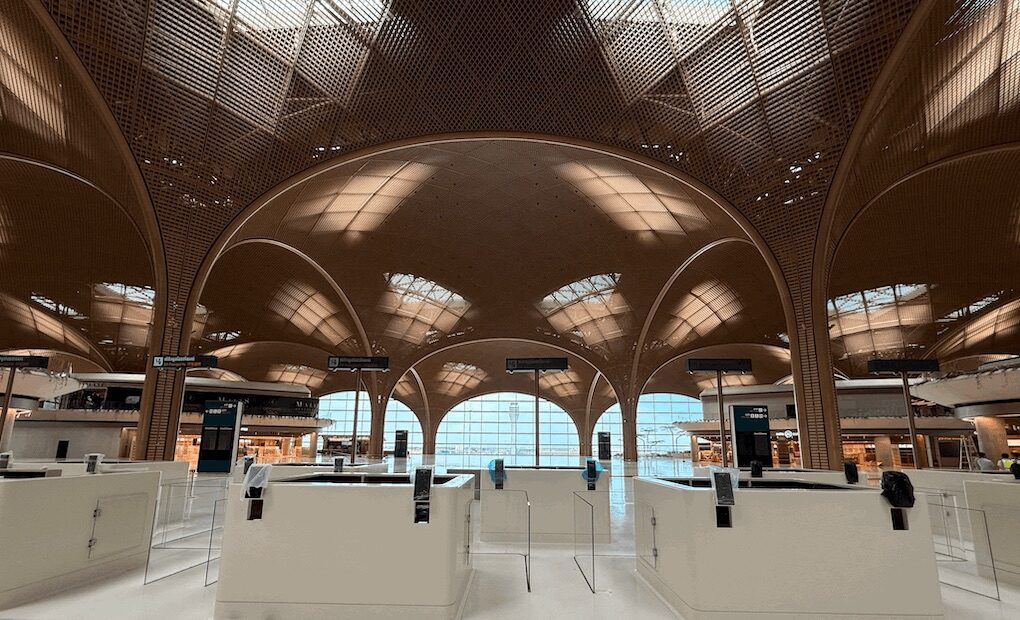In this column, we report on the changing travel and aviation landscape as it takes shape in response to the COVID-19 crisis. We bring you details of how airports, airlines, travel retailers, F&B concessionaires and other service providers are adapting their processes and practices to consumer concerns about health and safety in this new world.
12 August
Turkey
Airports Council International (ACI) World and ACI Europe have today revealed that Istanbul Airport is the first airport to be accredited through its new Airport Health Accreditation programme.
The programme assists airports by assessing new health measures and procedures introduced as a result of the COVID-19 pandemic. The accreditation is in accordance with ICAO Council Aviation Restart Task Force recommendations and in alignment with the joint EASA and ECDC Aviation Health Safety Protocol. It is also aligned with ACI Europe’s ‘Guidelines for a Healthy Passenger Experience at Airports’.
Topics covered by the accreditation include cleaning and disinfection, physical distancing (where feasible and practical), staff protection, physical layout, passenger communications and passenger facilities.
5 August
UAE
Etihad Airways has introduced MicrobeBarrier Snoods for first class and business class passengers. The snood face masks are made with soft, reusable jersey fabric. They are equipped with an anti-microbial treatment which offers broad spectrum protection against germs and bacteria.
Premium passengers can wear the snood around their neck while in their seat and pull it up over their nose and mouth when in close proximity to others.
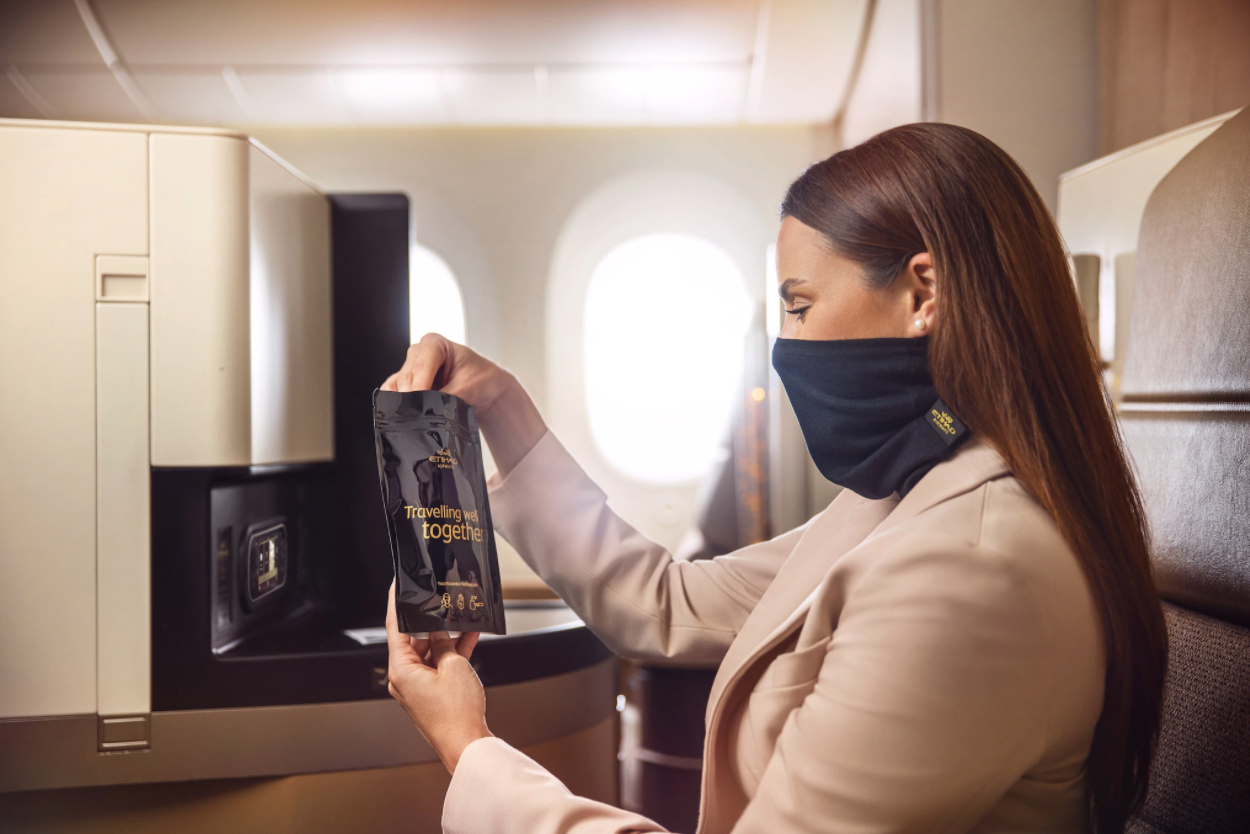
28 July
UAE
Etihad Airways is requiring all customers travelling to and transiting from Abu Dhabi to show a negative COVID-19 PCR test. The test must come from a list of approved testing facilities on www.etihad.com/destinationguide. The new measure is effective from 1 August.
The PCR test must be carried out within 96 hours of arriving to Abu Dhabi and customers are required to show a negative PCR test certificate before boarding.
Children under the age of 12 and passengers with mild to severe disabilities are exempt from the requirement. Passengers whose end destination is Abu Dhabi must also show their ICA approval.
The airline has also partnered with Mediclinic Middle East to offer departing passengers COVID-19 PCR tests at home or at Mediclinic facilities in Abu Dhabi for a fee.
27 July
USA
Airport company JFKIAT has launched camera-enabled CrowdVision technology to monitor social distancing at New York John F. Kennedy International Airport Terminal 4.
In what the airport operator said is a first for a North America terminal, CrowdVision and its new ‘SafeDistance’ feature can measure the number of passengers, operational resources, queue times and more. It means that JFKIAT can assess traveller movements from kerbside to check-in through security.
The technology will supply real-time alerts on customer separation (how far apart individuals are from one another) and will allow JFKIAT’s operations team to identify areas that are too crowded and places where people need to be dispersed to prevent any long period of overcrowding or overexposure. Having access to the data will help JFKIAT to analyse spaces within the terminal that have continual crowding, giving employees the ability to make changes necessary to limit crowds.
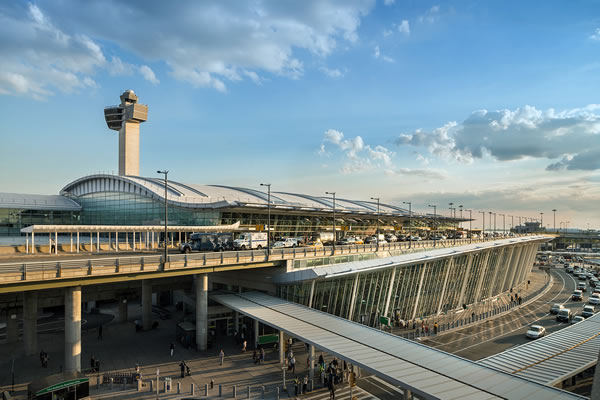
“In light of the COVID-19 pandemic, JFKIAT took immediate action to establish a new normal within T4 to ensure the safety and security of our customers and employees,” said JFKIAT President and CEO Roel Huinink.
“We strive to integrate innovative technology to help us better serve our customers, and on the road to recovery, restoring the confidence of passengers in travel is essential. The introduction of CrowdVision will not only help us become more efficient but will also help maintain a safe environment in the wake of COVID-19. We are pleased to implement this innovative technology as a key initiative of our COVID-19 recovery plan for T4.”
“Now more than ever passengers need confidence that journeys through airports will be fast, smooth and safe,” said Fiona Strens, Founder and Chief Product Officer of CrowdVision. “JFKIAT’s use of CrowdVision data from curb to gate, in both planning and live operational management, enables them to keep things moving, manage crowding and minimise waiting.”
14 July
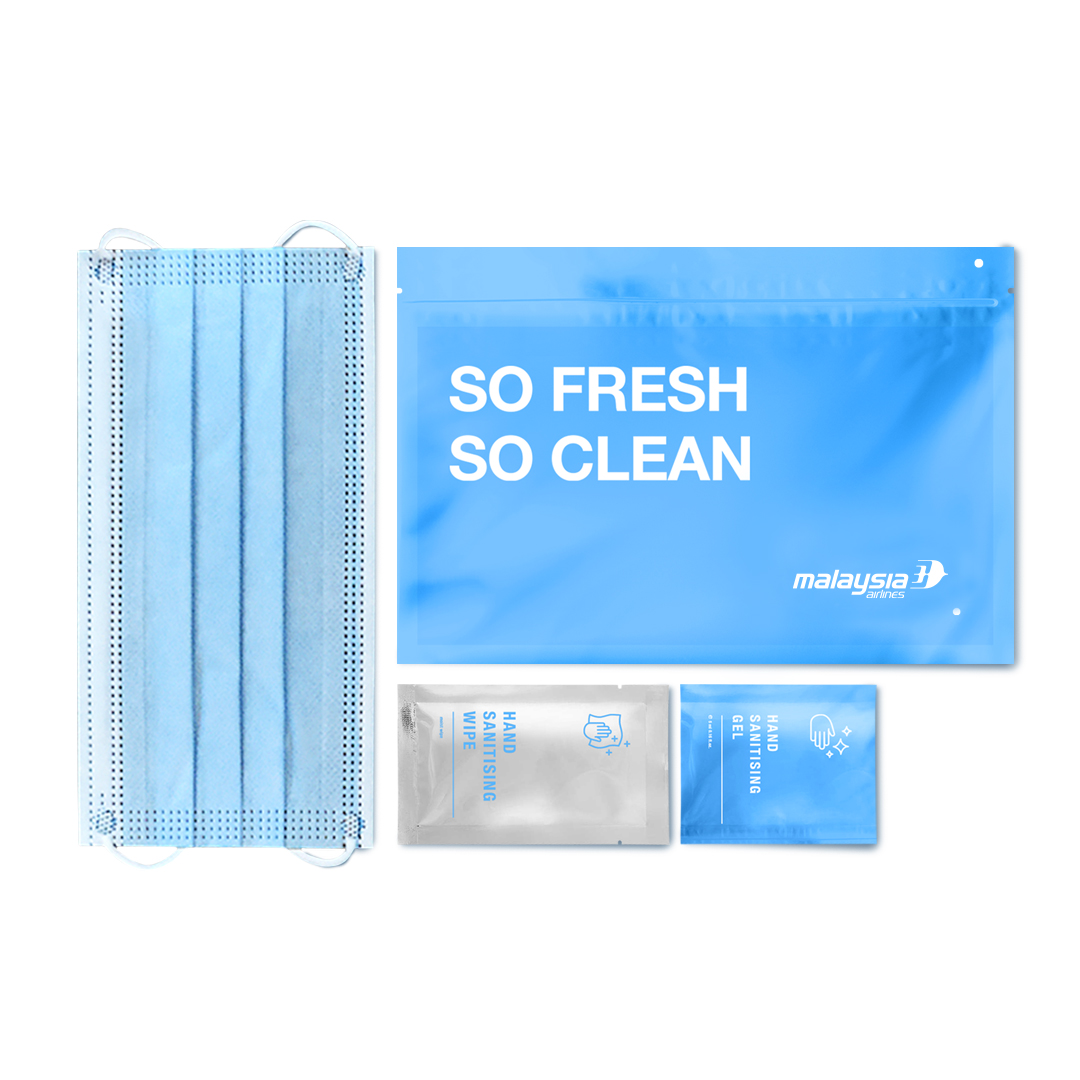
MALAYSIA
Malaysia Airlines has begun supplying passengers with complimentary hygiene kits as part of its ‘Fly Confidently’ safety campaign. The new measure was launched on 13 July.
Each kit contains a non-surgical mask, a sachet of hand sanitiser and a sachet of sanitary wipes. The kits are sealed in pocket-sized zip-lock pouches.
The Fly Confidently campaign aims to make flying safer and restore passenger confidence by promoting safety, hygiene and educational measures across Malaysia Aviation Group’s different airlines.
“Malaysia Airlines is committed to ensuring that we provide our passengers an end-to-end travel experience that assures them the peace of mind they need when they travel with us,” said Malaysia Airlines Group Chief Marketing and Customer Experience Officer Lau Yin May.
“From the moment they book their flights, arrive at the airport and go through immigration to board their flights, each step has been seamlessly integrated with enhanced safety and health measures to better protect our passengers and crew.
“The world-at-large is beginning to reopen its borders to travel and flights once more, and these new Hygiene Kits are additional steps taken by the airline to care for our passengers throughout their journey. We look forward to welcoming our passengers onboard again and they can rest assured of being able to ‘Fly Confidently’ and enjoy our signature Malaysian Hospitality.”
9 July
INTERNATIONAL

Skyscanner Senior Technology Expert Dave Thomson has predicted the new technologies that travel industry stakeholders will adopt in the era of post-COVID travel.
These include touch-free tech, pre-booked security checks, sanitagged luggage, health kiosks, disinfection robots, AI security systems, Hotel TV apps and self-unlocking cars.
“Touchless tech, which uses biometrics to verify bookings and identity, could mean increased mobile boarding passes and a transition towards iris scans and AI facial recognition and away from scanning passports and IDs,” says Thomson who notes that facial recognition boarding procedures have already been implemented by Delta Airlines. Biometric testing is also underway at airports in Canada, Iceland, Italy, Japan, Singapore and Spain, he says.
Pre-booked security eliminates the need for airport queues and is already being implemented by Montréal-Trudeau International Airport. Thomson says, “Airport queues could become by appointment only to stop overcrowding. Luggage screening of the future could be done by different kinds of computer vision systems, eventually removing the need for a centralised security screen.
“Luggage may have to be spray-disinfected and tagged on the check-in belt before being put on the plane. Hand luggage could be sanitised via UV rays or fogging while in the X-ray security machine.”
Thomson predicts that airports will invest heavily in automation. South Korea’s Incheon International Airport has already deployed temperature-checking robots; while Hamad international Airport has introduced thermal screening robots and special temperature-screening helmets for staff. “With effective health testing incorporated into the security process, detecting viruses during travel could become a reality. Temperature checks are becoming the norm for travellers going through international airports,” commented Thomson.
Singapore Changi Airport has also deployed sanitation robots; while Hong Kong International Airport is trialling full-body disinfection booths and intelligent sanitation robots, capable of eliminating 99.9% of viruses in the air.
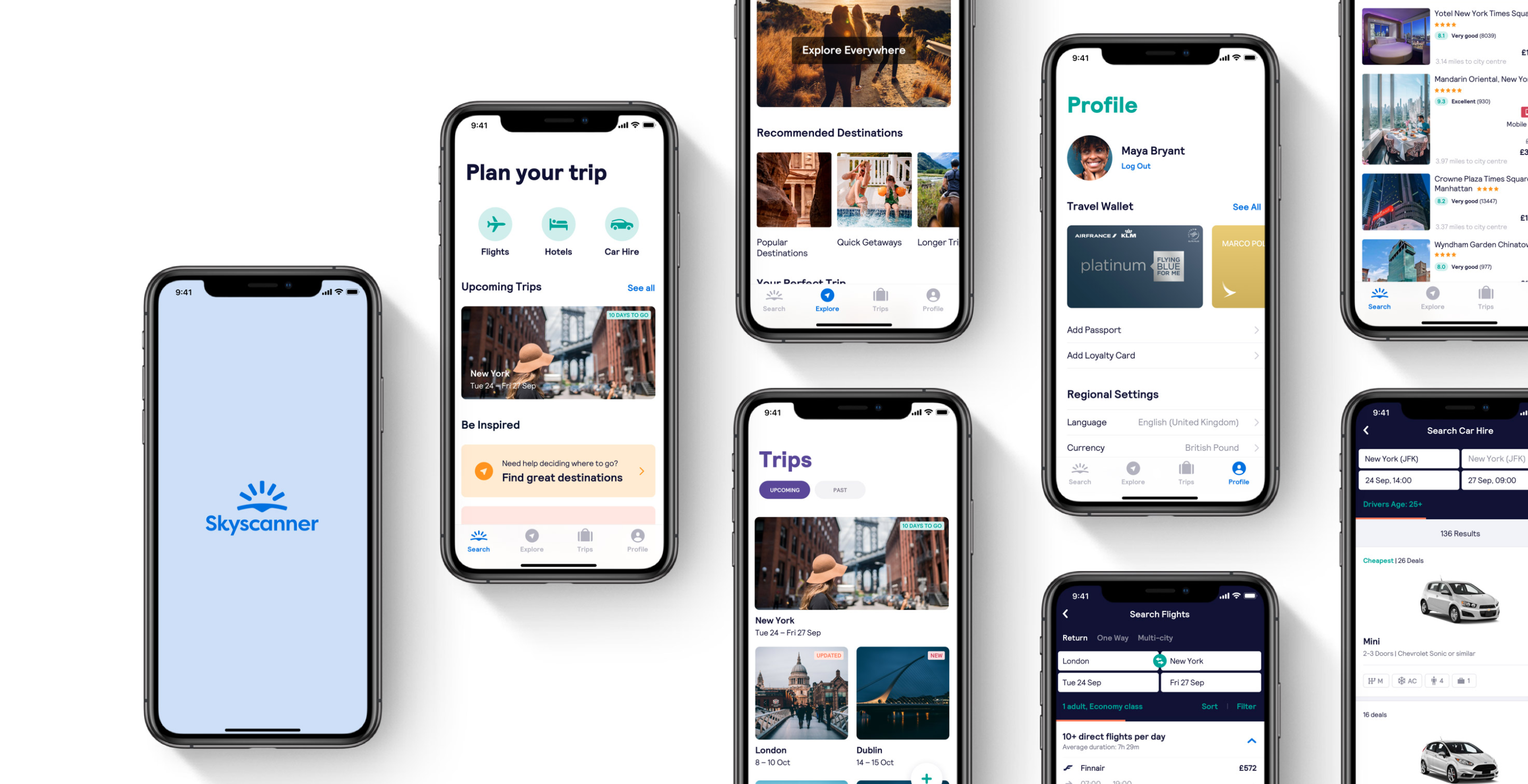
Machine learning and AI security systems are another key trend to watch out for, says Thomson. “The changing landscape of travel tech due to COVID-19 has accelerated the implementation of Artificial Intelligence (AI). Machine learning techniques in advanced body scans could be used to detect threats, like explosives and firearms.” Thomson notes that Japan’s Finance Ministry is aiming to introduce an AI-based contraband detection system in the next ten years.
Other areas that require further innovation are hotels and cars. Thomson notes that self-unlocking cars and Hotel TV apps — which allow travellers to control in-room entertainment through their smartphones — can further minimise infections at various high-touch points of the traveller journey.
8 July
US
JFK International Air Terminal (JKFIAT) — which operates Terminal 4 of John F. Kennedy International Airport — has launched a multi-faceted COVID-19 recovery campaign to boost customer confidence and ensure the safety and wellbeing of travellers and employees.
The recovery plan has assigned dedicated teams focused on five key areas: hygiene and sanitation, health and wellbeing, social distancing, transactions, and communications. Each team develops innovative solutions to address specific challenges in the ‘new normal’ of air travel. This includes the installation of PPE vending machines, robotic cleaning technology, and elevated thermal screening.
JFKIAT has also launched an information campaign called S.M.I.L.E (social distance, mask, inform, lather and encourage) to communicate the enhanced safety measures to travellers and spread positive messages about staying safe.
S.M.I.L.E at T4 from JFKIAT on Vimeo.
JFK Terminal 4 is currently the only air terminal in the US to implement COVID-19 test screenings for employees. It has partnered with XpressSpa’s new brand XpresCheck and the Port Authority of New York to launch the test screening pilot programme which has a capacity of up to 500 employees per day.
“The impacts of COVID-19 on the aviation industry have been unprecedented, and in order to move forward, industry leaders must find unprecedented solutions,” commented JFKIAT President and CEO Roel Huinink. “JFKIAT’s mission is grounded in providing the best possible customer experience and ensuring the highest levels of safety, and we have executed plans to ensure that our employees can feel safe and positive at work, give our customers reassurance as they return to travel once more, and cultivate systems to prepare T4 for the future.”
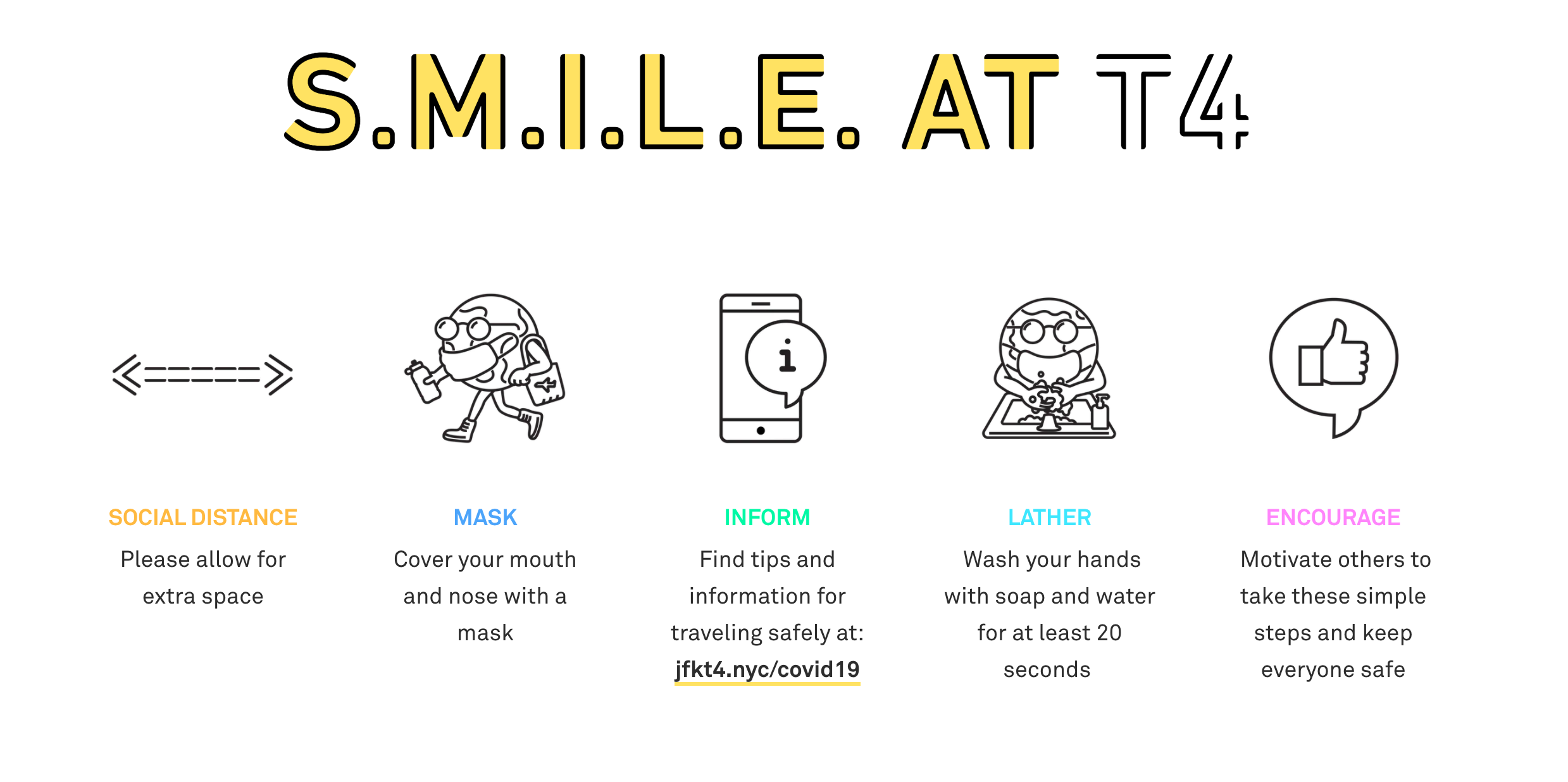
Malaysia
Malaysia Aviation Group — which owns Malaysia Airlines, Firefly and MASwings — has launched the Fly Confidently campaign to inform passengers on the enhanced health and safety measures implemented by the group.
The Fly Confidently campaign showcases easy-to-understand infographics and guidelines on each airline’s website and social media channels. It also features an informative video titled ‘Fly Confidently, Fly Malaysia’ that outlines the safety and hygiene measures implemented throughout the entire passenger journey.
The video begins from mobile check-in and continues with a detailed walkthrough of Kuala Lumpur international Airport, covering check-in counters, immigration and customs areas, Golden Lounges, boarding gates, and baggage collection zones. It also outlines the enhanced inflight safety protocols implemented onboard Malaysia Airlines, Firefly and MASwings.
These include imposing physical distancing, requiring passengers and crew to wear face coverings, sanitising customer touchpoints, health screening using thermal scanners and thermometers, and displaying the COVID-19 monitoring app MySejahtera QR Code.

In addition, Malaysia Airlines is supplying passengers with complimentary hygiene kits, while Firefly is handing out limited-edition Enrich Hygiene Kits to Enrich members and Firefly passengers on selected flights.
The company says that the enhanced safety measures meet the guidelines of the International Civil Aviation Organization (ICAO), World Health Organisation (WHO), International Air Transport Association (IATA), and Ministry of Health of Malaysia (MOH).
Malaysia Aviation Group CEO Captain Izham Ismail said: “The safety and wellbeing of our passengers and employees are important to us. Hence, we introduced the Fly Confidently campaign to educate the traveling public on the health and safety measures that we have put in place to travel safely from pre-flight right up to arrival.”
2 July
USA
HMSHost has introduced touchless checkout and payment technology at Farmers Market at Kansas City International Airport Terminal B, in a move that accelerates the travel restaurateur’s use of digital solutions.
The technology, powered by Mashgin, uses artificial intelligence for more automation and less physical interaction.
Passengers can place their chosen items on the Touchless Checkout System where visual technology will recognise them, display prices, and then prompt the user to complete payment without any human interaction. There is no need to scan each item individually or search through screen menus, allowing travellers to quickly be on their way, said the company.
Full story here.
Qatar
Qatar Airways has introduced enhanced health and safety measures onboard its fleet. This includes requiring cabin crew to wear personal protective equipment (PPE) and supplying passengers with complimentary face shields and protective kits.
The disposable face shields can be collected at check-in counters in Hamad International Airport (HIA) and will be distributed at the boarding gates of other Qatar Airways destinations.
Economy Class passengers are required to wear their face shields over their face masks throughout the duration of the flight; while children under the age of two are exempted from wearing face coverings. Business Class and Qsuite passengers can wear face shields at their own discretion, as they enjoy more space and privacy.
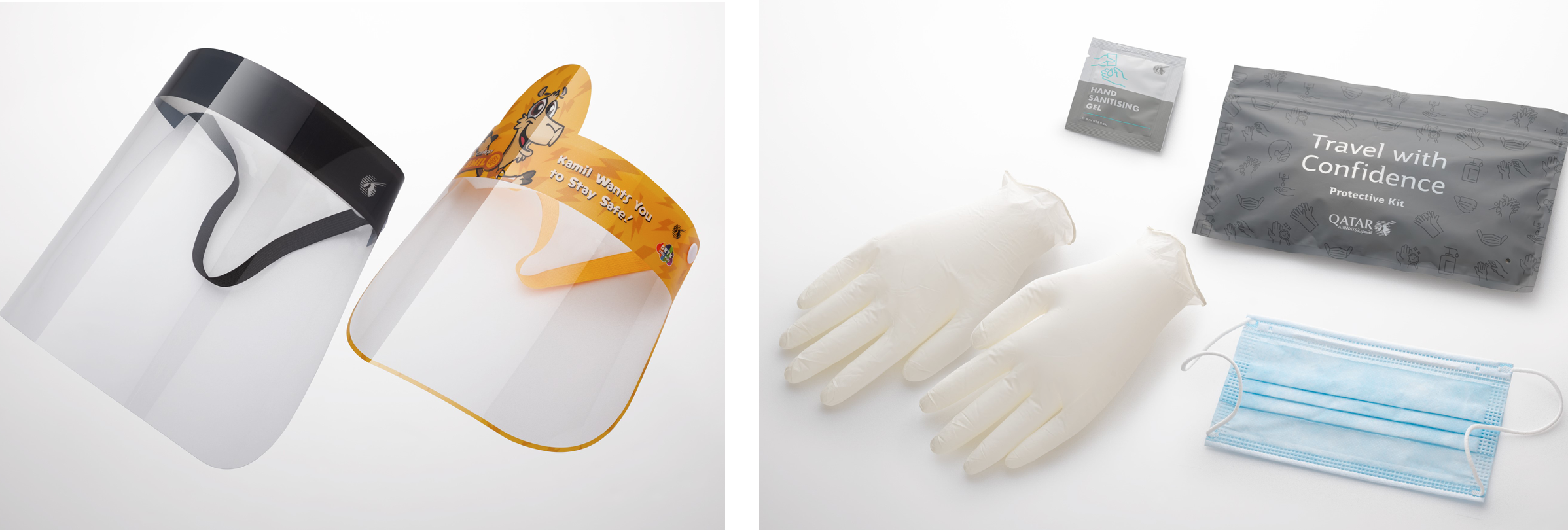
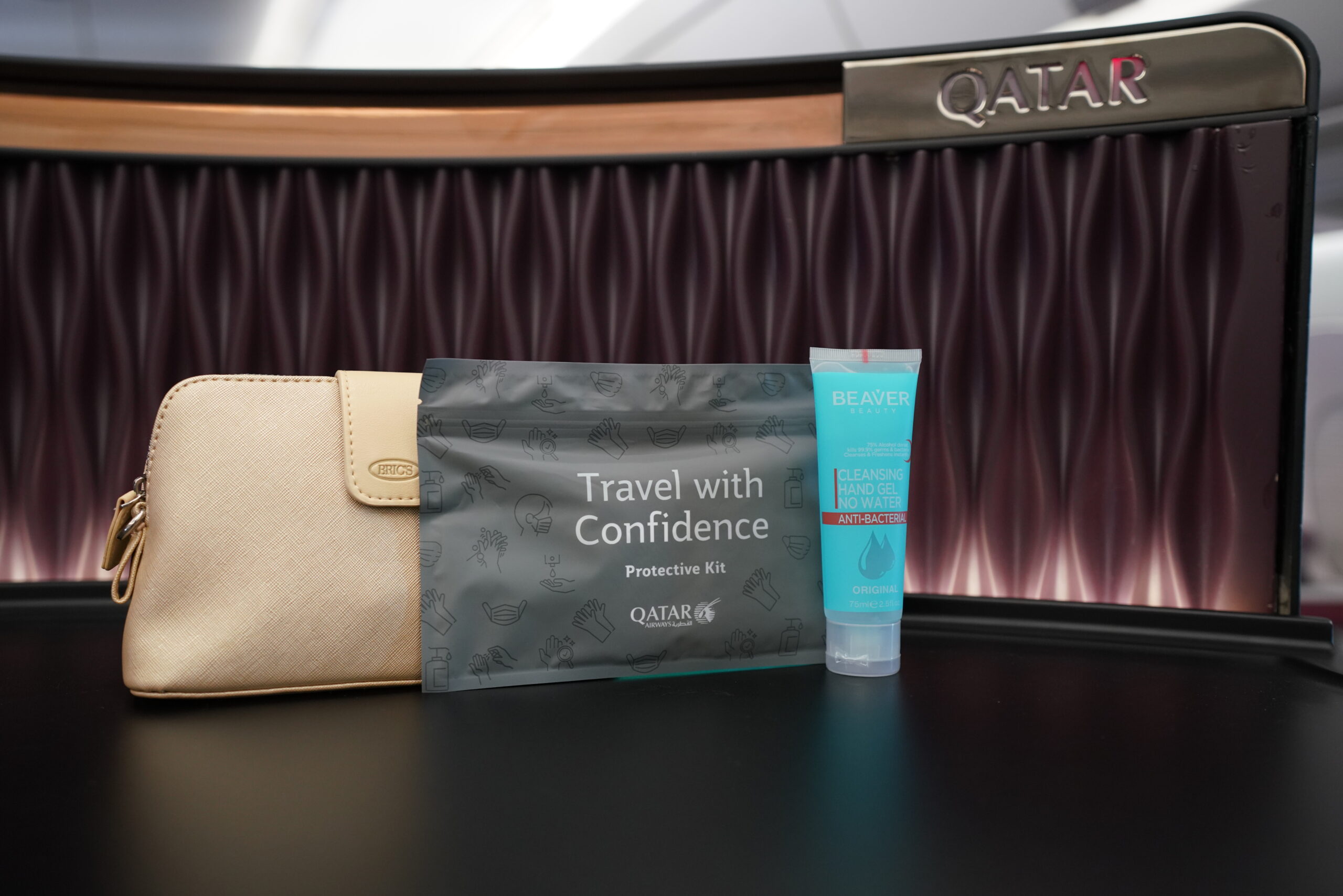
The complimentary protective kits include a Ziplock pouch, a single-use surgical mask, disposable powder-free gloves and hand sanitiser.
“Throughout the COVID-19 crisis, the safety of our passengers has been our highest priority. By introducing these additional onboard safety and hygiene measures, our customers can rely on us and our unparalleled expertise to fly them safely to their destination,” commented Qatar Airways Group Chief Executive His Excellency Mr. Akbar Al Baker.
“As the largest international airline flying consistently throughout the pandemic, we have become one of the most experienced in safety and hygiene. We will continue to lead the industry in terms of the services offered to our passengers, so that they can travel with confidence.”
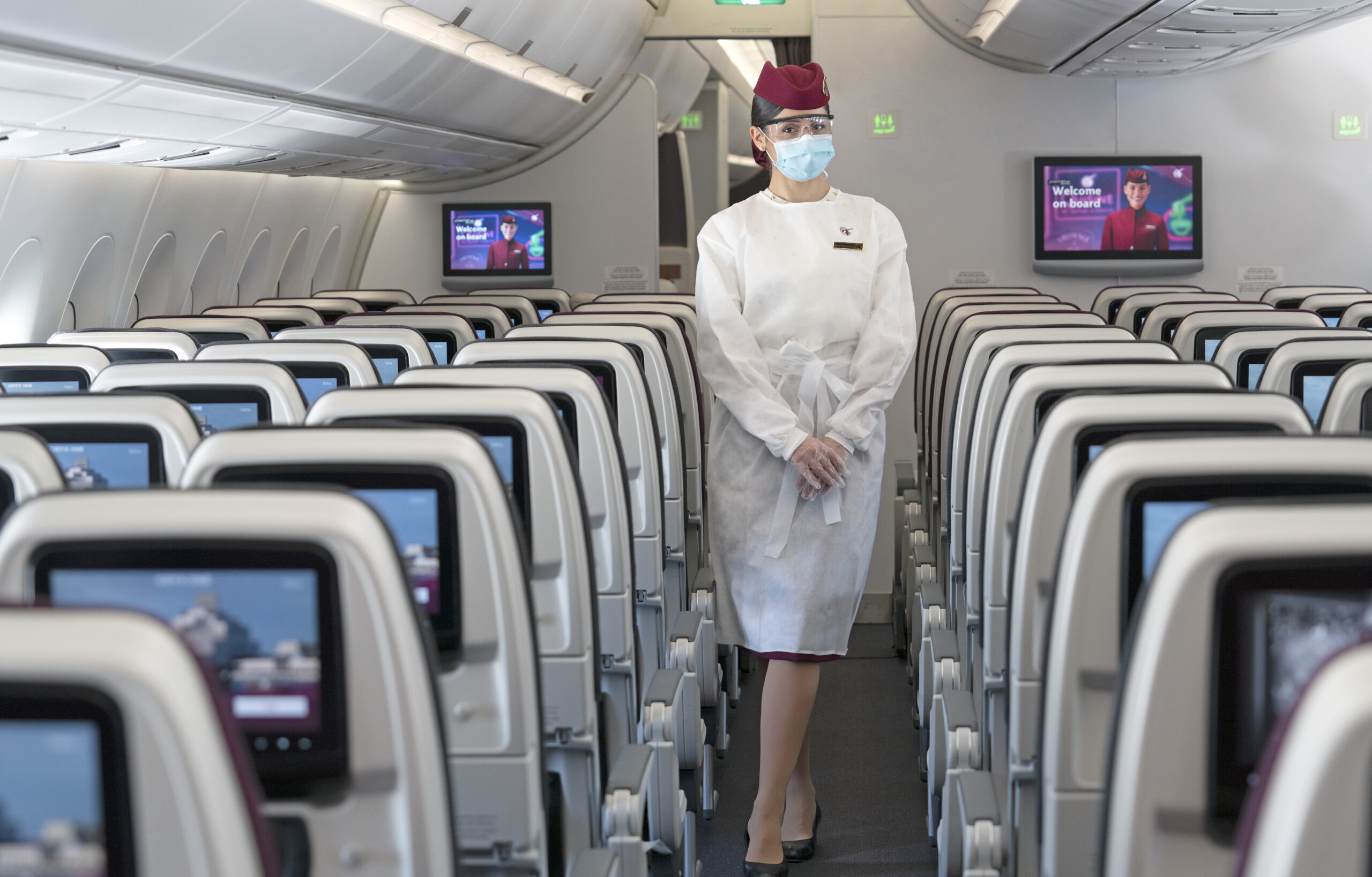
1 July
Singapore
Changi Airport Group (CAG) has introduced new contactless and cleaning innovations as it aimed to deliver “a safer, but seamless, journey”. The measures will be rolled out airport-wide in preparation for when air travel into and out of Singapore gradually resumes.
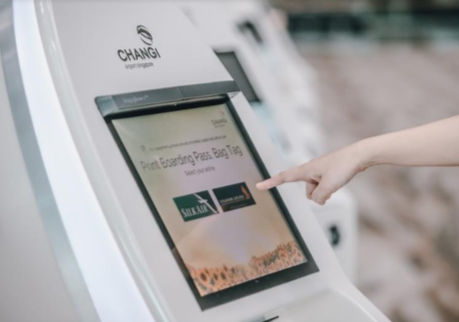
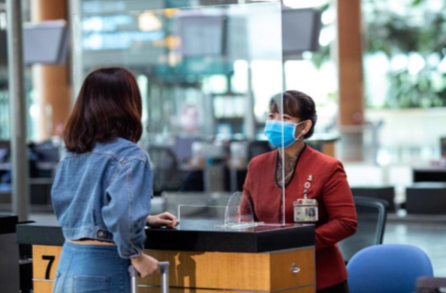
At Changi’s automated kiosks, new proximity sensors are being installed to eliminate the need for travellers to touch the electronic screens when they check in or drop off their bags.
Used for the first time in any airport, infrared sensors will enable passengers to select options and key in their travel details by pointing their finger close to the screen without touching it. For those who need to check in at counters staffed by customer service agents, acrylic screens will provide a safe barrier between passengers and staff, said CAG.
Elsewhere, the Immigration & Checkpoints Authority has upgraded automated immigration lanes at Changi Airport with a new biometric system. It uses face and iris recognition technology as the primary means for identity verification. This replaces traditional fingerprint scanning.
CAG said it was using more technology to clean and disinfect the airport. Autonomous cleaning robots in the terminals have been upgraded with a nozzle that sprays a light disinfecting mist for added protection on carpets and floors during cleaning. CAG is also testing the use of ultraviolet-C (UV-C) LEDs to disinfect the handrails of escalators and travelators in a safe way. A trial is also being conducted on the use of contactless infrared technology for passenger lifts, where travellers can hover their finger over the lift button to activate it.
These innovations build on previously introduced precautionary measures against Covid-19. These include temperature screening at key points, safe distancing, use of masks by all passengers and staff, increased cleaning and disinfecting, widespread introduction of sensor-activated “auto” hand sanitisers and the use of an antimicrobial spray on frequently touched surfaces for added protection against pathogens.
Changi Airport Group Executive Vice President for Airport Management Tan Lye Teck said: “Passengers will expect airports to deliver the highest standards of safety and hygiene to give them peace of mind during their journey, and we will rapidly bring on board new measures as we go into a new normal for air travel. The improvements we announce today demonstrate CAG’s continuous commitment to passenger health and a positive airport experience. CAG will work with other aviation partners to instil a high sense of confidence among travellers going through Changi Airport when air travel eventually resumes.”
Germany

Lufthansa Group and Fraport have teamed up with rare disease company Centogene to offer rapid COVID-19 tests at Frankfurt Airport. The RT-PCR test (Reserve Transcription Polymerase Chain Reaction Test) detects acute infections of the COVID-19 virus.
The test will help passengers avoid further quarantine measures upon arrival or when returning to Germany from abroad. The COVID-19 test centre is located in the passage between Terminal 1 and the ‘The Squaire’ office building.
Travellers need to pre-register at the Centogene website, before going to the test centre to get a throat swab. They can pay €59 for the regular COVID-19 test which provides results in six to eight hours, or pay €159 for the express test which gives results within three.
Passengers will receive their test results digitally from Centogene. They can also pay an additional €9 fee to obtain an official and internationally valid test certificate to submit to international authorities when travelling.
30 June
UK
London City Airport has released a video promoting passenger wellbeing, as it prepares to step up operations in July. The video, which takes inspiration from London band Erasure, asks passengers to show ‘A Little Respect’.
London City Airport COO Alison Fitzgerald said: “We want to reassure passengers that it is safe to travel, and I hope this video allows them to understand the measures we have taken to protect their health and wellbeing.
“We also hope to demonstrate that, despite additional safety measures, the uniquely important aspects of the customer experience at City have not changed at all.”
US
Through its new brand XpresCheck, airport health & wellness specialist XpresSpa has launched the first COVID-19 screening and testing location at a US airport, at New York JFK International Terminal 4. The service was introduced on Monday in partnership with JFKIAT, which operates Terminal 4, and the Port Authority of New York and New Jersey.
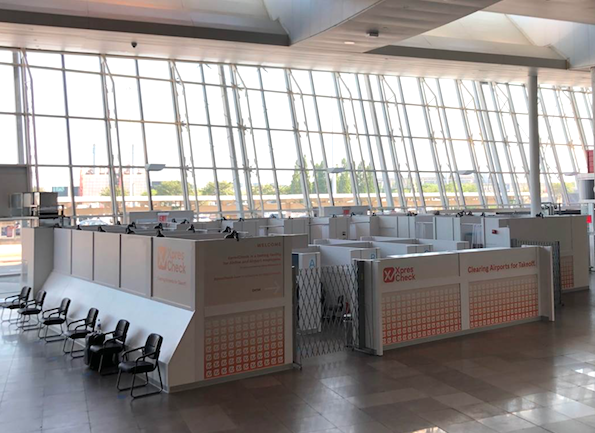
The pilot programme is open to all JFK terminal employees, airline employees and airport workers, including concessionaire partners’ staff, security and Customs and Border Protection agents. XpresCheck has the capacity to screen up to 500 employees per day. The company said it will ensure that JFK workers have access to testing at the airport.
The XpresCheck at JFK is a new site constructed in the T4 Arrivals Hall. It holds nine separate testing rooms and provides the ability to conduct both COVID-19 testing as well as antibody testing. Both antibody testing and polymerase chain reaction (PCR) testing are available on-site, and the tests are sent to outside laboratories.
“At JFKIAT, we have always looked for ways to better serve our employees, passengers, and front-line airport workers at Terminal 4, and in the wake of the COVID-19 pandemic, ensuring a safe environment is more important than ever before,” said JFKIAT President and CEO Roel Huinink. “We are very pleased to partner with XpresSpa and the Port Authority to launch the first air terminal testing site in the US.”
“The Port Authority is pleased to open the nation’s first COVID-19 and antibody testing facility for employees at JFK International Airport with JFTIAT and XpresSpa,” said Port Authority Chairman Kevin O’Toole. “The agency will continue to enhance safety at its facilities by piloting the new technologies, programmes and policies needed to manage the impact of the coronavirus outbreak.”
“Safety and security are the Port Authority’s top priorities, and opening the new XpresCheck COVID-19 pilot program builds on measures the agency has taken to protect travellers and airport workers across the region,” said Port Authority Executive Director Rick Cotton. “Today’s announcement is an important addition to our commitment to providing a safe facility for workers and travellers alike.”
“We are thrilled to launch our first pilot testing site at JFK Terminal 4, and we are hopeful that this will benefit airport workers,” said XpresSpa CEO Doug Satzman. “Together with JFKIAT and the Port Authority, we will support the safety and health of front-line airport workers and travellers as New York’s recovery plan takes form.”
XpresSpa said in March that it was advancing conversations to develop a model for COVID-19 testing in US airports, as reported by Vane Airport Media.
29 June
US
Delta Air Lines has said it will continue to block the selection of middle seats and will cap seating in every cabin through to 30 September.
Delta said it plans to “ensure more space for customers on all aircraft” by capping seating at 50% in First Class and domestic Delta One; 60% in Main Cabin, Delta Comfort+, and Delta Premium Select; and 75% in international Delta One to reduce the total number of customers onboard.
All middle seats will continue to be shown as unavailable or not assignable when selecting seats via the Fly Delta app or online. The airline will also block the selection of some aisle seats in aircraft with 2×2 seating configurations.
“Reducing the overall number of customers on every aircraft across the fleet is one of the most important steps we can take to ensure a safe experience for our customers and people,” said Chief Customer Experience Officer Bill Lentsch. “Delta is offering the highest standards in safety and cleanliness so we’re ready for customers when they’re ready to fly again.”
Delta said that where increasing customer demand pushes flight loads closer to capacity, it will aim to upgrade to larger aircraft types or add more flights.
25 June
International
The International Air Transport Association (IATA) has called for a series of measures as an alternative to blanket quarantine measures.
“Imposing quarantine measures on arriving travellers keeps countries in isolation and the travel and tourism sector in lockdown,” IATA Director General & CEO Alexandre de Juniac said. “Fortunately, there are policy alternatives that can reduce the risk of importing COVID-19 infections while still allowing for the resumption of travel and tourism that are vital to jumpstarting national economies.”
IATA is proposing measures in two areas: reducing the risk of imported cases and mitigating the risk when an infected person does travel.
Measures proposed to reduce the risk of imported cases via travellers are:
- Discouraging symptomatic passengers from travelling
- Public health risk mitigation measures, such as having health declarations after being tested
- Testing on arrival for travellers from countries perceived to be higher risk
Measures for mitigating the risk when an infected person does travel are:
- Reducing the risk of transmission during the journey by implementing the International Civil Aviation Organization (ICAO) guidelines
- Rapid identification and isolation of contacts
- Reduced risk of transmission at the destination through appropriate social distancing
Canada
Toronto Pearson International Airport has launched a five-point ‘Healthy Airport’ programme that outlines the steps the airport and its partners are taking to adapt to the new realities of air travel. The Greater Toronto Airports Authority (GTAA) said it aims to lead the industry in advancing the future of healthy travel corridors.
The Healthy Airport announcement includes the following commitments to passengers and airport workers:
- We commit to making passenger and employee health our top priority.
- We commit to working with our partners to set strong, consistent standards for passenger and airport worker health.
- We will deploy multi-layered tools and adjust quickly to changes and current intelligence.
- We will ensure our approach is best in class and aligned with international aviation standards.
- We will explore all innovative and technologically advanced solutions for ensuring the safety of our passengers and employees.
The announcement comes alongside a strategic partnership with BlueDot, a leader in advanced data analytics and technologies to predict and monitor infectious disease risks.
The GTAA is also working with Wipro, a global technology leader, to conduct a pilot of wearable tracing and physical distancing technology for airport workers.
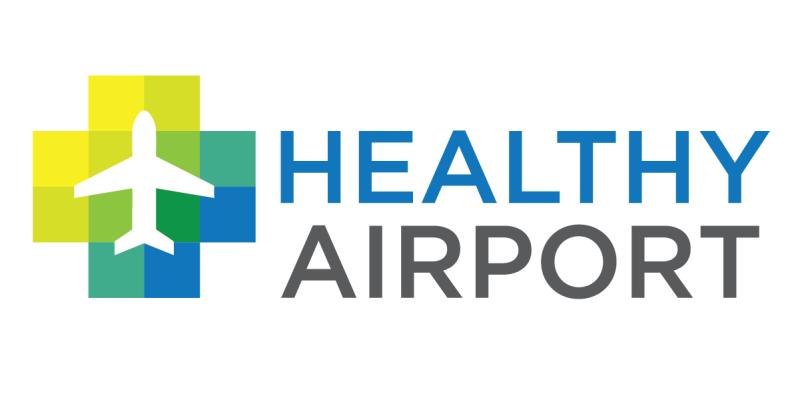
“Toronto Pearson is an international leader in the aviation sector, having set the standard for exceptional passenger service among large North American airports for three years in a row,” said GTAA President and CEO Deborah Flint.
“As government restrictions on air travel begin to be lifted and flights increase, Toronto Pearson is ready, and we are intent on exceeding international standards. Everyone who works at Toronto Pearson is dedicated to playing a leadership role in fulfilling the health protection measures and adapting quickly to changes and future standards. We are dedicated each day to providing the pathway for Canadians who are dreaming of the day they can travel again.”
The commitment includes setting the highest standards for cleaning and hygiene, clear communications and the introduction of innovative technology advancements, including touchless check-in, a disinfection corridor for airport workers, facility monitoring for congestion, autonomous floor cleaning machines and air quality monitors.
The commitment supplements measures introduced by the GTAA on 1 June – mandatory masks, limited access to airport facilities, continued enhanced cleaning and hygiene and increased signage for physical distancing.
Region of Peel Interim Medical Officer of Health Dr. Lawrence Loh said: “Toronto Pearson’s ‘Healthy Airport’ Initiative demonstrates leadership and a commitment of the airport and its partners to ensure the health and safety of employees and visitors to the airport during the COVID-19 pandemic.”
Toronto Airport Workers’ Council spokesperson Steven Tufts said: “Airport workers want to see the return of travel. The future of our airport community will be shaped by our collective response to this unprecedented crisis. We look forward to welcoming travellers back into Toronto Pearson, a model for healthy airports everywhere.”
19 June
US
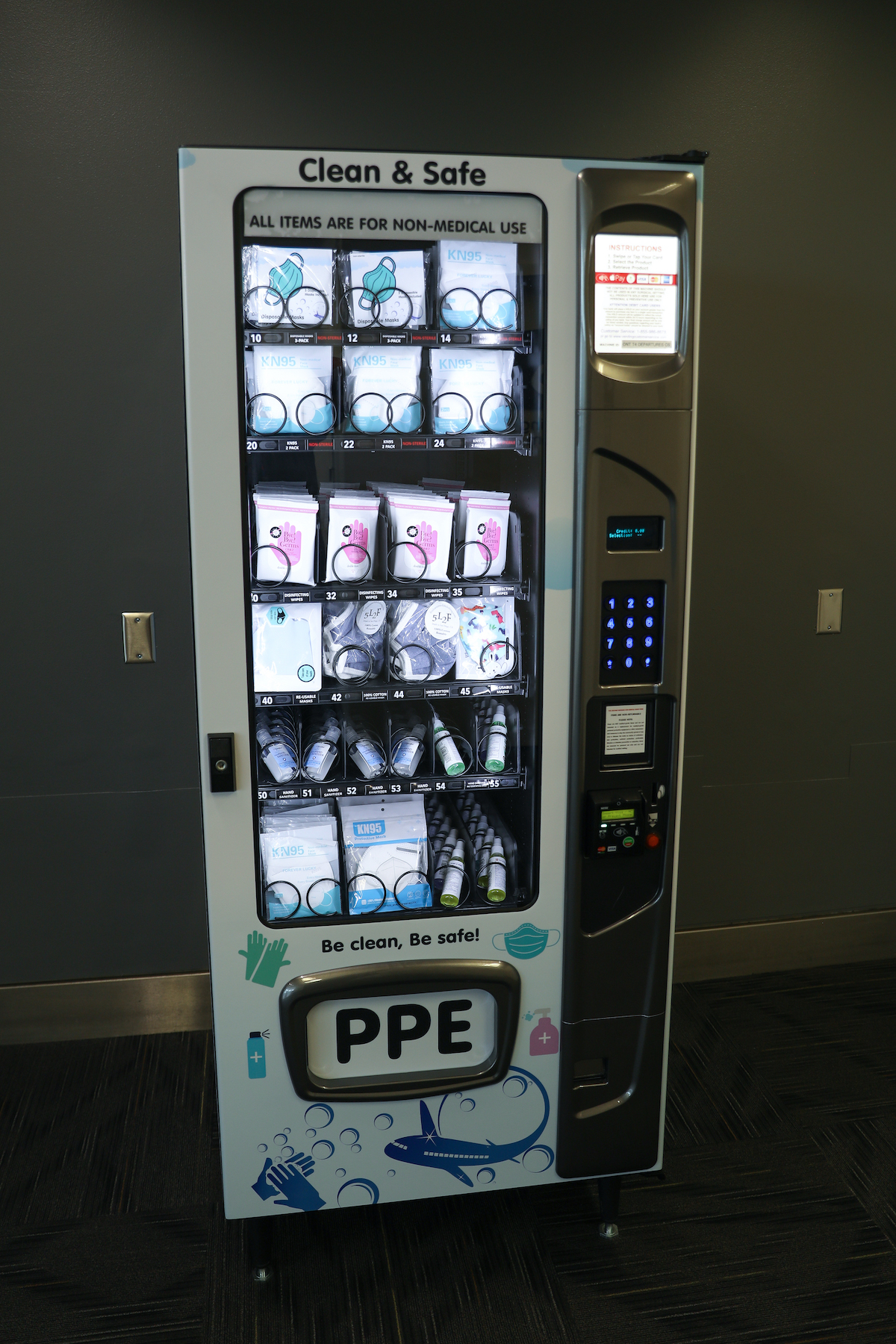
Ontario International Airport has introduced vending machines selling personal protective equipment (PPE).
The self-service kiosks, which are operated through a concession agreement with Prepango, are selling face covers, disposable gloves, disinfectant wipes and hand sanitiser.
Ontario International Airport CEO Mark Thorpe said: “While the global coronavirus pandemic continues to impact virtually every aspect of life, we are taking steps to make essential travel safe by offering PPE to those who might forget to bring them from home or are unaware of new requirements.”
Californian developer of automated travel and retail solutions, Prepango, has already provided PPE vending machines for McCarran International Airport in Las Vegas.
18 June
India
Travel Food Services (TFS) has introduced a host of new measures to make its airport lounges and F&B environments safe, as domestic travel begins again in India.
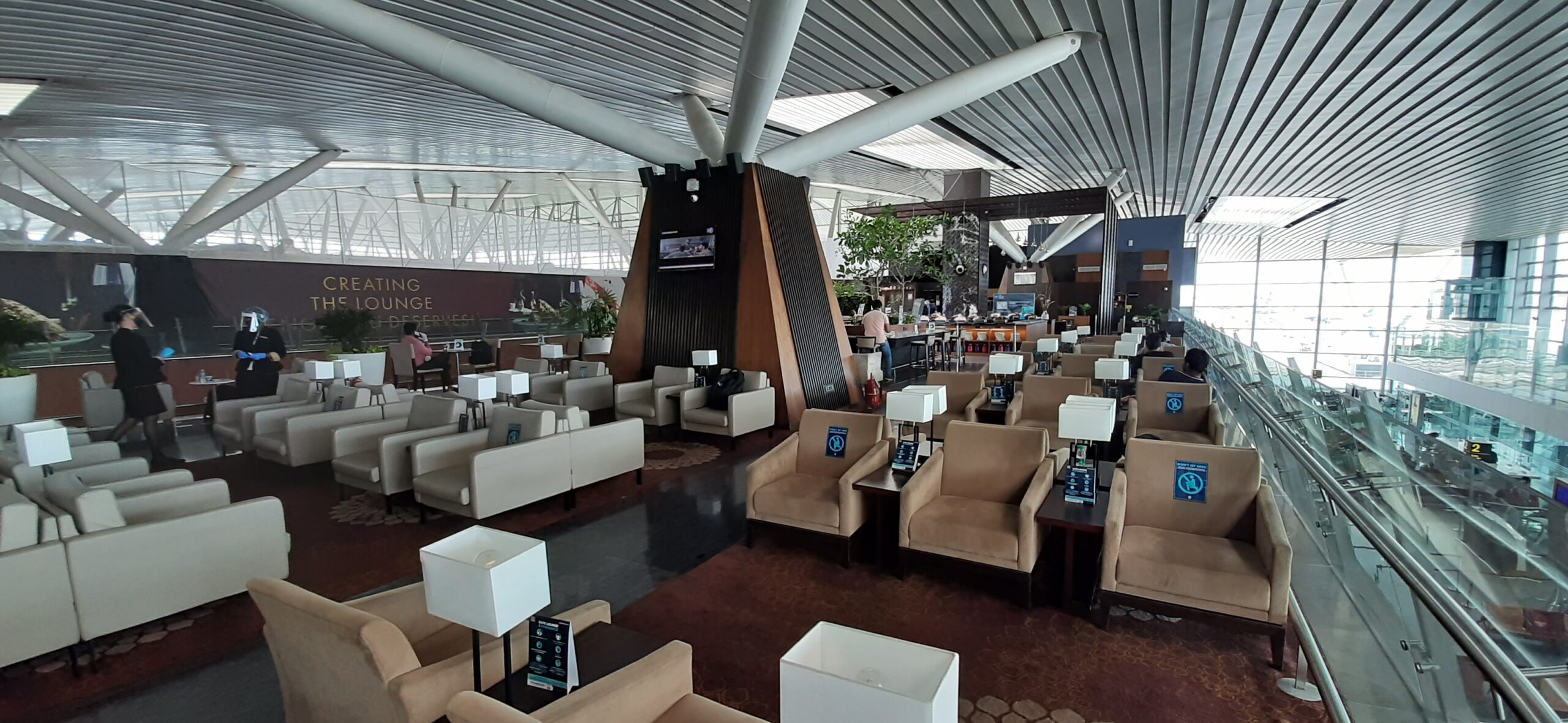
The measures include:
- Training staff for self-hygiene and giving them PPE equipment, including masks and gloves
- Deep cleaning measures with medical-grade disinfectants across all retail outlets, food courts, restaurants, bars and lounges
- Increased frequency of disinfection of all food contact surfaces and other surfaces that are frequently touched by team members and customers
- Kitchens and back of house areas are sanitised as per WHO and FSSAI advisories
- Daily temperature checks for all colleagues, contractors and vendors
- Hand washing reminder bell installed in all back and front of house spaces
- Provide clean facilities in restrooms
- Ensuring proper social distancing is maintained; this includes increasing the distance between guests, order takers, stewards, cashiers, seating and placing markings on floors to help maintain healthy distance
- Positioning credit card devices so that guests may swipe their own credit cards without staff assistance. Payment encouraged with contactless cards.
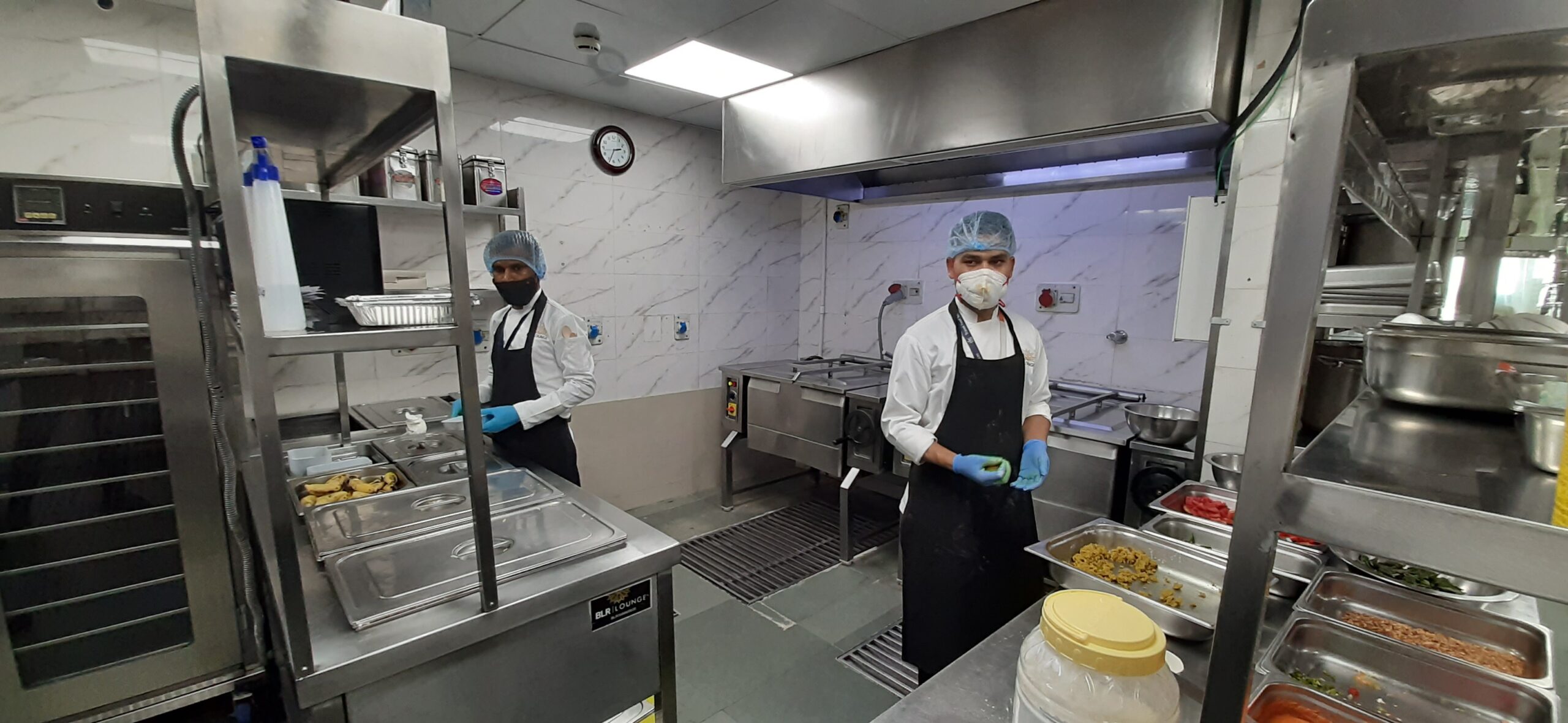
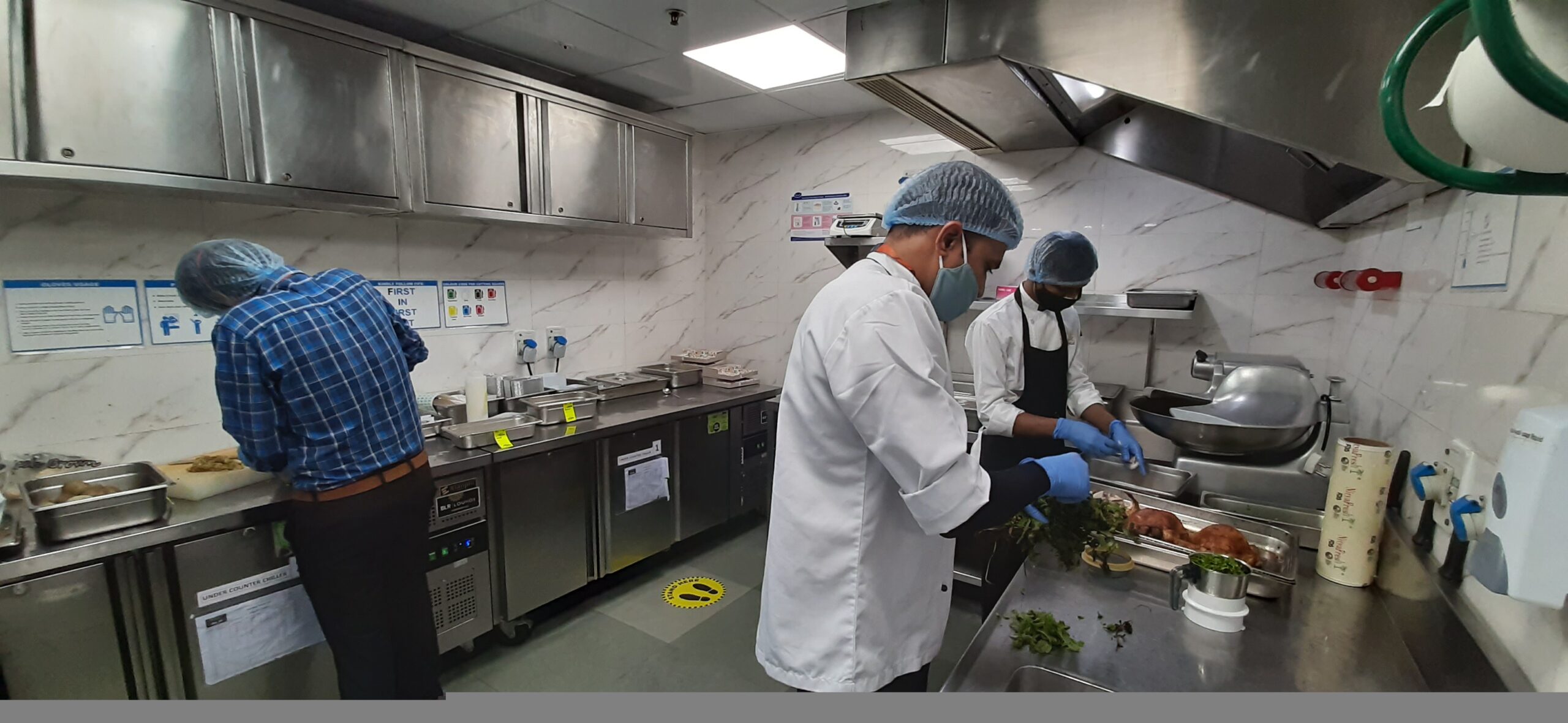
TFS COO and Business Head Gaurav Dewan said: “We have strongly emphasised our sanitisation procedures across all our formats across India, and have set in processes to create safe zones within our outlets for our employees, guests and associates. As precautionary measures, we have sanitisers available at all touch-points at all units, and temperature checks are conducted at all entry points for both guests and employees.
“Other measures include training and sensitising our employees and associates to the protocols prescribed by the government authorities. This includes sanitisation of all furniture, handles and other high touch areas, increased frequency of handwashing and use of medical-grade disinfecting solutions in the outlet and kitchen.”
UK
AGS Airports — the operator of Aberdeen, Glasgow and Southampton airports — has introduced enhanced safety measures across all its terminals. The measures have been implemented as airlines prepare to resume operations on key domestic routes this month.
Airport staff have been equipped with personal protective equipment (PPE), while passengers have been required to bring and wear their own face masks. Plastic screens have also been installed in high traffic areas — including check-in and security — to implement physical distancing.
In addition, the company has introduced the use of electrostatic fogging machines and antimicrobial cleaning products to disinfect trays and surfaces, installed hand sanitiser dispensers and self-cleaning stations for trolleys and placed floor markers to promote social distancing. Airport staff have also undergone special COVID-19 safety training.
AGS is also discouraging any passengers showing COVID-19 symptoms from travelling to the airport.

“Our airports have remained open throughout this pandemic to provide crucial lifeline services. During this time, we’ve worked closely with both the UK and Scottish governments, and their officials, to ensure we follow all health guidance,” commented AGS Airports Chief Executive Derek Provan.
Provan added, “As the lockdown begins to ease and airlines start to confirm plans to restart domestic connectivity, it’s important we do everything we possibly can to keep our airports clean and safe for our staff and for our passengers. These measures, which are in place at all three of our airports, will ensure we help each other to travel safely through our terminals at a time when we are working to get our country and the economy moving again.”
UK
Manchester Airport is giving passengers the chance to pre-book a 15-minute security slot to reach the departure lounge quicker.
By booking the slot, travellers will use a dedicated lane for their security check. The airport said this will both allow passengers to be processed more efficiently and minimise the length of socially distanced queues.
Slots are available on a first-come-first-served basis, with the airport recommending periods are booked for a time two hours before flight departure. If passengers reach security outside their allotted time, they will join the standard queue.
Manchester Airports Chief Operating Officer Brad Miller said: “Safety and security will always be the first priority and, at the same time, COVID-19 will undoubtedly reshape the airport experience. We are exploring every innovation and technology that can help us to adapt to the new world, protect public health and restore confidence in air travel.
“This new measure will allow us to manage our security process more efficiently in these challenging times, providing a better and more comfortable experience for passengers.”
If successful, the option will be introduced at London Stansted and East Midlands, the other airports operated by Manchester Airports Group (MAG).
16 June
South Korea
Incheon International Airport is trialling non-face-to-face temperature reading in its departure halls.
According to Korean media outlets, the airport has installed three machines in Terminal 1 and one in Terminal 2. They can measure the temperature of approaching travellers using a thermal imaging camera and alert the airline if an excess temperature is detected.
In the second half of the year, the operator of the airport also plans to introduce a robot that can detect if passengers are wearing a mask.
Italy
Italian baggage protection company TraWell Co has signed an exclusive agreement with UV-C disinfection technology company Sanycar to introduce luggage sanitation devices across its points of sale.
The partnership will equip TraWell Co with new technology to enhance its sanitation services within partner airports and address growing customer demand for enhanced hygiene and safety amid the COVID-19 crisis.
Through the agreement, customers can benefit from additional baggage sanitation as part of TraWell Co’s core wrapping service without any additional fees.
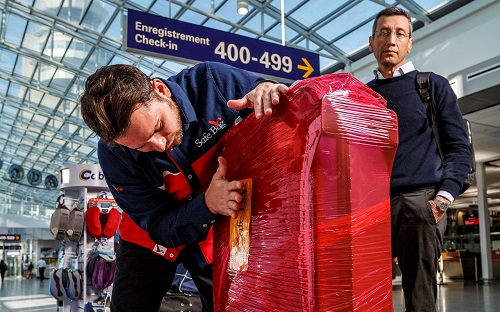
According to TraWell Co Chairman Rudolph Gentile, the group’s partnership with Sanycar not only increases the value of its core services but also offers customers extra protection during the health crisis. He said, “The agreement with Sanycar is an important strategic step for us, as it allows us to ensure the best offer in terms of services and technology to both our airport partners and our customers.
“The goal is, on the one hand, to meet the emerging need for hygiene against the risk of virus infection and, on the other, to extend the use of our services to a wider target of airport passengers. There are many opportunities in this field, so we hope to expand our collaboration with the Sanycar group in other areas in the future.”
“Since the beginning of our business, we have aimed to exploit the great potential of germicidal UV-C technology in new vertical markets with respect to ones that are already saturated, such as healthcare,” commented Sanycar Founder & Chief Technology Officer Gianni Delogu. “The airport industry, in which we are proud to have been first movers, welcomed Sanycar’s novel solutions, which are now available for the treatment of trolleys, safety and luggage trays.”
Sanycar Chief Executive Officer Carmine Mannea added, “With TraWell, we immediately found common ground and a natural vocation for international development. Also for this reason, we are confident that this agreement will prove an important starting point for a promising strategic relationship.”
15 June
UK
Edinburgh Airport has partnered with The Lane Agency to develop an eye-catching safety awareness campaign.
The ‘let’s all flysafe’ promotion is designed to provide passengers with confidence and reassurance as flights from the Scottish airport resume. It is being backed by both signs at the airport and social media graphics.
Other measures introduced at the airport include:
- One way systems to manage passenger flow and social distance
- Hand sanitising stations inside and outside the airport
- Protective screens at check-in, security and arrivals
- A trial of temperature checking technology
- Staff wearing face coverings and personal protective equipment (PPE)
- Enhanced cleaning schedules
- Deep cleaning of security trays
- COVID-19 awareness training for all staff
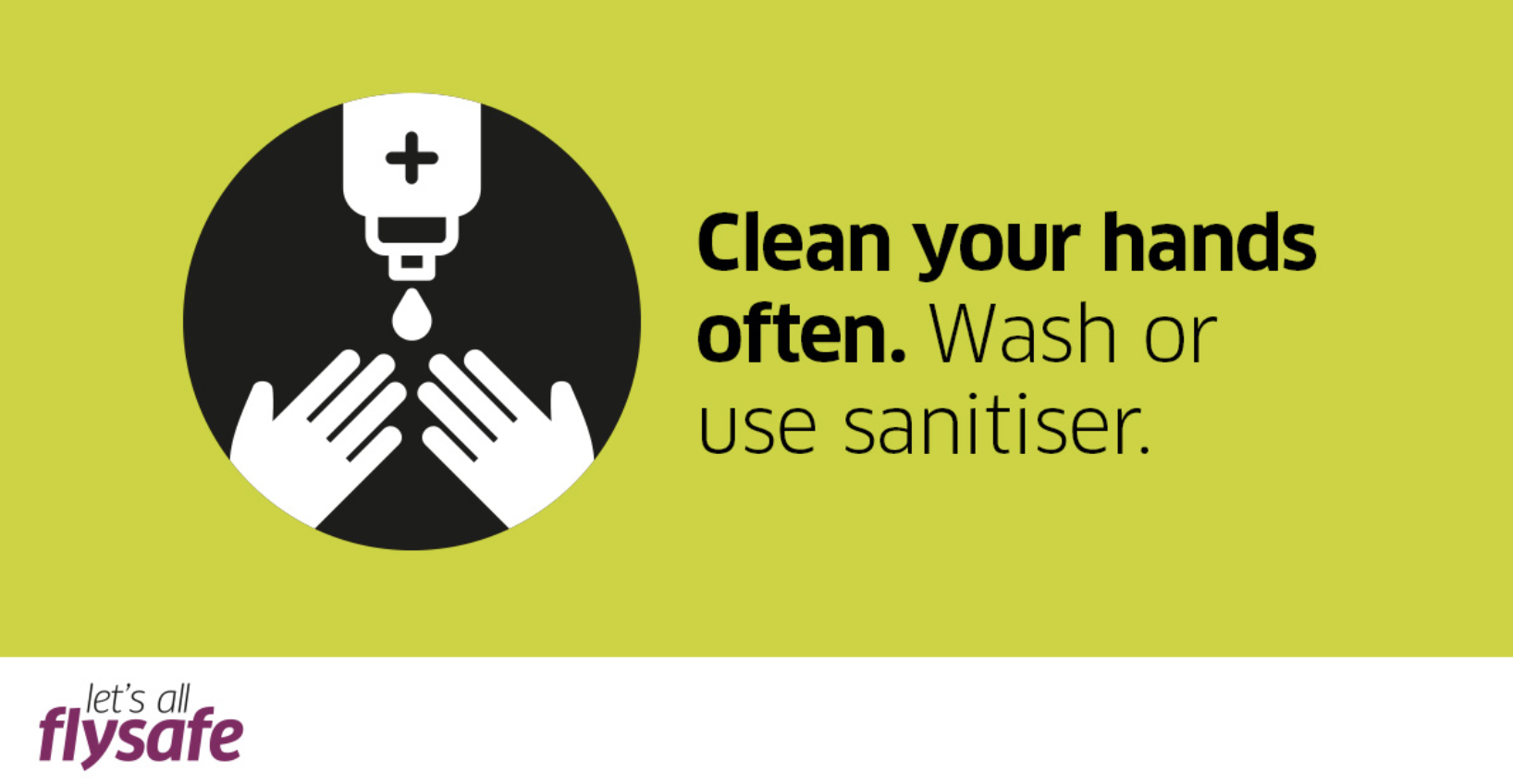
“We know how important it is to provide passengers with reassurance and confidence as they look to return to travel, and we’ve spent a lot of time looking at how we do that by making improvements to our operation. The steps we have taken will allow people to get moving safely and reopen our economy by providing that connectivity that our airlines are rebuilding,” Edinburgh Airport Chief Executive Gordon Dewar said.
11 June
UK
The UK government’s Department for Transport has published new guidance setting out measures to protect staff and passengers throughout the aviation journey.
The measures produced by the International Aviation Taskforce are the culmination of the government’s engagement with the aviation industry and public health experts.
Retailers throughout the airport should follow government guidance for retail, the advice says. This means, where possible, customer numbers should be limited, self-service options made available and a one-way system put in place. Retailers should also be cashless if possible.
The guidance adds that airports and retailers should work together to minimise any risks from food & beverage areas by opening additional seating areas if that improves social distancing.

The other measures advised for the airport journey include extensive cleaning, the introduction of hand sanitiser stations and mask wearing for staff and passengers.
In its advice to travellers, the guidance recommends checking in all baggage and not walking around the airport extensively, as well as not travelling if you have experienced coronavirus symptoms in the last seven days.
UK Transport Secretary Grant Shapps said: “The government’s advice currently remains to avoid all non-essential travel, but today we are taking the necessary steps to ensure a framework is in place for the aviation industry to bounce back when it is safe for restrictions on travel to be lifted.”
Manchester Airports Group (MAG) Chief Strategy Officer added that the guidance “provides the basis for the restart and recovery of the UK aviation industry”.
UAE
Abu Dhabi Airports has partnered with Meta Touch to deploy touchless technology in 53 elevators across Abu Dhabi International Airport.
The new technology makes the airport more hygienic by allowing users to command an elevator by simply waving their hand in front of a panel to indicate their preferred floor or direction.
“This innovative technology bolsters the extensive safety measures our company has implemented as a regional leader in the airports sector,” Abu Dhabi Airport CEO Shareef Hashim Al Hashmi said.
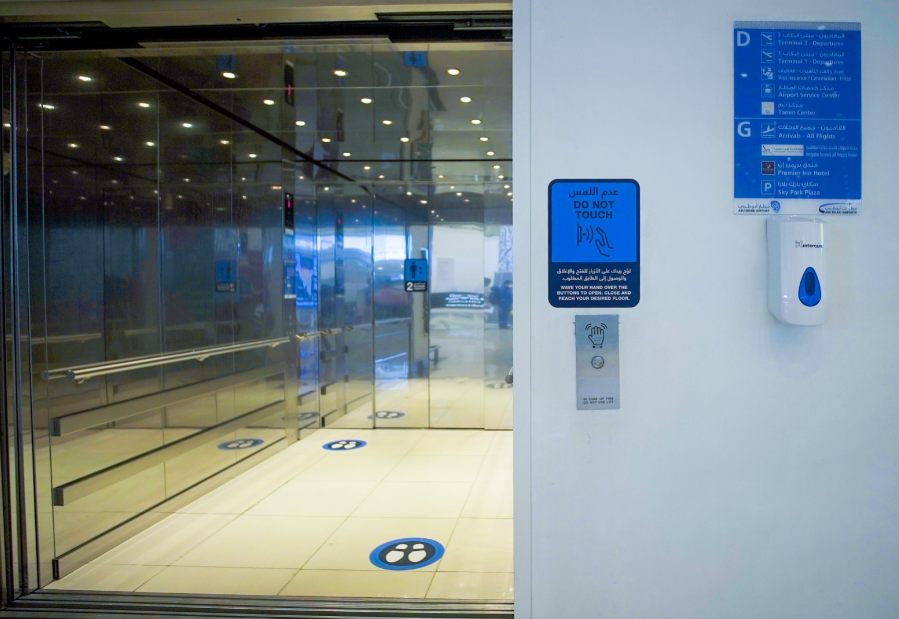
Ireland
The operator of Dublin and Cork airports has announced a number of enhanced safety and hygiene measures.
Across the two airports, DAA has introduced 960 hand sanitiser stations, 720 protective plexiglass screens and 10,500 pieces of COVID-19-related signage. The airport operator is also strongly recommending that all passengers and employees wear face masks; ten dedicated face mask vending machines have been installed at the airports.
DAA Chief Executive Dalton Philips said: “The safety of our passengers, our employees and all the other staff that work at Dublin and Cork airports is always DAA’s main priority and we will never compromise on that.”
The new measures, which reflect Ireland’s national guidelines and those devised by the European Aviation Safety Agency, will come into effect from 16 June.
Singapore
Changi Airport Group has revealed the dedicated area that will ensure transit passengers do not mix with other passengers.
As reported, the Civil Aviation Authority of Singapore announced passengers would be allowed to transit through Singapore Changi Airport from 2 June if the airport introduced certain precautions.

Passengers choosing to transit through the Singapore airport will be met by airport staff and taken to the dedicated transit holding area in the terminal for their connecting flight.
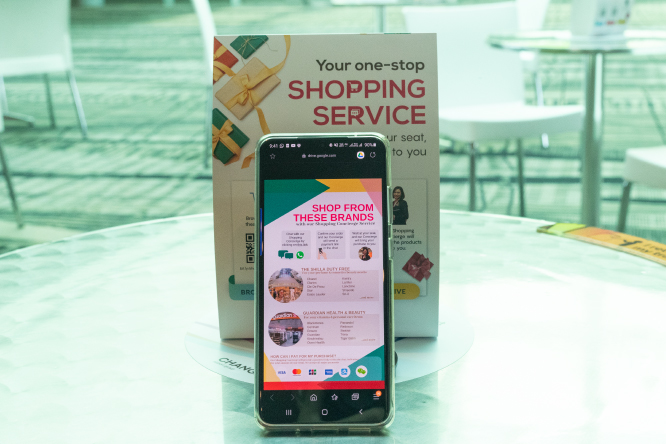
In the transit space, travellers can make duty free purchases using a concierge service and have the products delivered to the transit area. Products ordered on the iShopChangi ecommerce service can also be delivered.
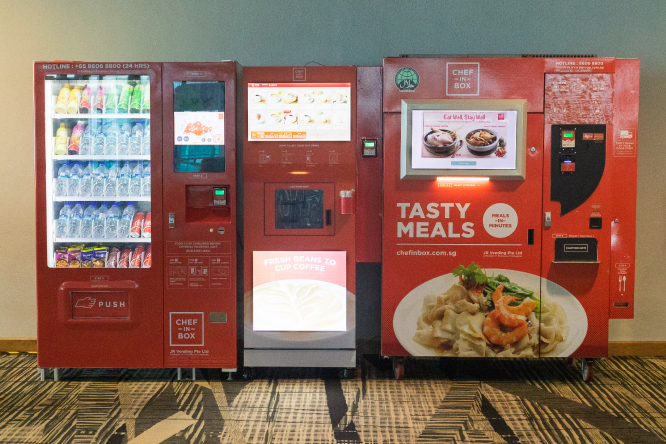
Selected airport food & beverage outlets are also offering delivery to the zone for orders made through an app. Light meals, snacks and drinks can be purchased from vending machines in the area.
Other amenities include socially distanced seating, a snooze area and a play space for children.
Premium transit passengers will have a separate waiting area in the transit lounge with food and drinks service.
Ahead of connecting flights, staff will guide passengers from the transit section to their gate.
Malaysia
AirAsia has introduced enhanced safety and hygiene protocols onboard its fleet and throughout the customer journey. These measures include regular aircraft disinfection and the use of hospital-grade filters, which remove 99.9% of viral particles in recirculated air. The airline has also made the wearing of masks compulsory for all passengers, adapted inflight services and enhanced cabin crew’s medical training.
The airline has also introduced a range of contactless procedures, from check-in to boarding, to minimise passenger contact with surfaces. It is also offering additional services to support expecting mothers and elderly passengers in the at-risk age group.
To help inform passengers about the new measures, the airline has launched an information campaign called ‘Fly Safe with AirAsia.’ It highlights its enhanced cleaning protocols and illustrates the steps it is taking to ensure that passengers can travel safely.
AirAsia Chief Safety Officer Captain Ling Liong Tien commented, “At AirAsia, we are all about raising the bar on safety standards, as we are in the business of connecting people. All of our aircrafts in the AirAsia Group have very stringent safety management systems set up.”
10 June
North America
Dufry company Hudson is to introduce Personal Protection Equipment (PPE) vending machines to 27 North American airports and the Houston Space Center. These will offer a range of health and safety offerings sourced and manufactured in the US, said the company.
The roll-out will begin in late June and run through the Summer, with the machines to be located in pre-security locations. They will present “a convenient and seamless shopping experience for travellers and essential airport workers who may have forgotten their PPE at home, or are looking for additional ways to keep themselves and their families healthy and safe,” according to Hudson.

Each vending machine will be stocked with a variety of essential products which can be purchased with a credit card. Items will include:
- Individual and bulk packaged face masks, including disposable, KN95 and cloth options
- Individual 2 oz. and 4 oz. hand sanitisers, and bulk hand sanitiser wipes
- All-in-one hygiene kits
- Nitrile gloves and multi-use thermometers
- Portable and rechargeable UV-C sanitisers for mobile devices and personal items
In certain airports, travellers will also be able to purchase name brand electronics and travel essentials from the vending machines, including charging cables and wireless headphones.
To ensure a sanitary shopping experience, the vending machines’ touchscreens will be sealed with an anti-microbial shield that eliminates germs on the surface for three to four months before replacement, and social distancing floor decals around the machine to maintain crowd control.
“With the gradual return of passengers to airports across North America following COVID-19, we’re noticing a behavioural change in travellers which puts health and safety at the forefront of the travel experience,” said Hudson EVP and Chief Operating Officer Brian Quinn. “To meet these expectations, we’ve developed an extensive product offering as part of our PPE vending machines that delivers traditional and technology-focused health and safety options.”
South Korea
Korean Air has introduced a new boarding system as part of its enhanced social distancing and hygiene protocols.
The ‘back-to-front’ zone boarding system for all economy class passengers on domestic and international routes will see the aircraft divided into three or four zones. Passengers at the rear of the aircraft will then board first, with the exception of those needing special assistance.
The airline has already introduced temperature checks for all travellers, made mask wearing compulsory and put floor markers in place to ensure social distancing at departure gates.
9 June
France
Paris Charles de Gaulle Airport has implemented European Union Aviation Safety Agency (EASA) recommendations to enhance the hygiene of the airport.
The Groupe ADP airport, which is looking to help establish an international sanitary standard in air travel, is ensuring health and safety standards are met throughout the traveller journey.
It has also introduced ‘sanitary corridors’ on certain flights between Paris and Réunion. This collaboration with Air Austral, Air France and the French Civil Aviation Authority guarantees that passengers do not show symptoms prior to travel, are not exposed to the virus during their journey and are screened upon arrival.
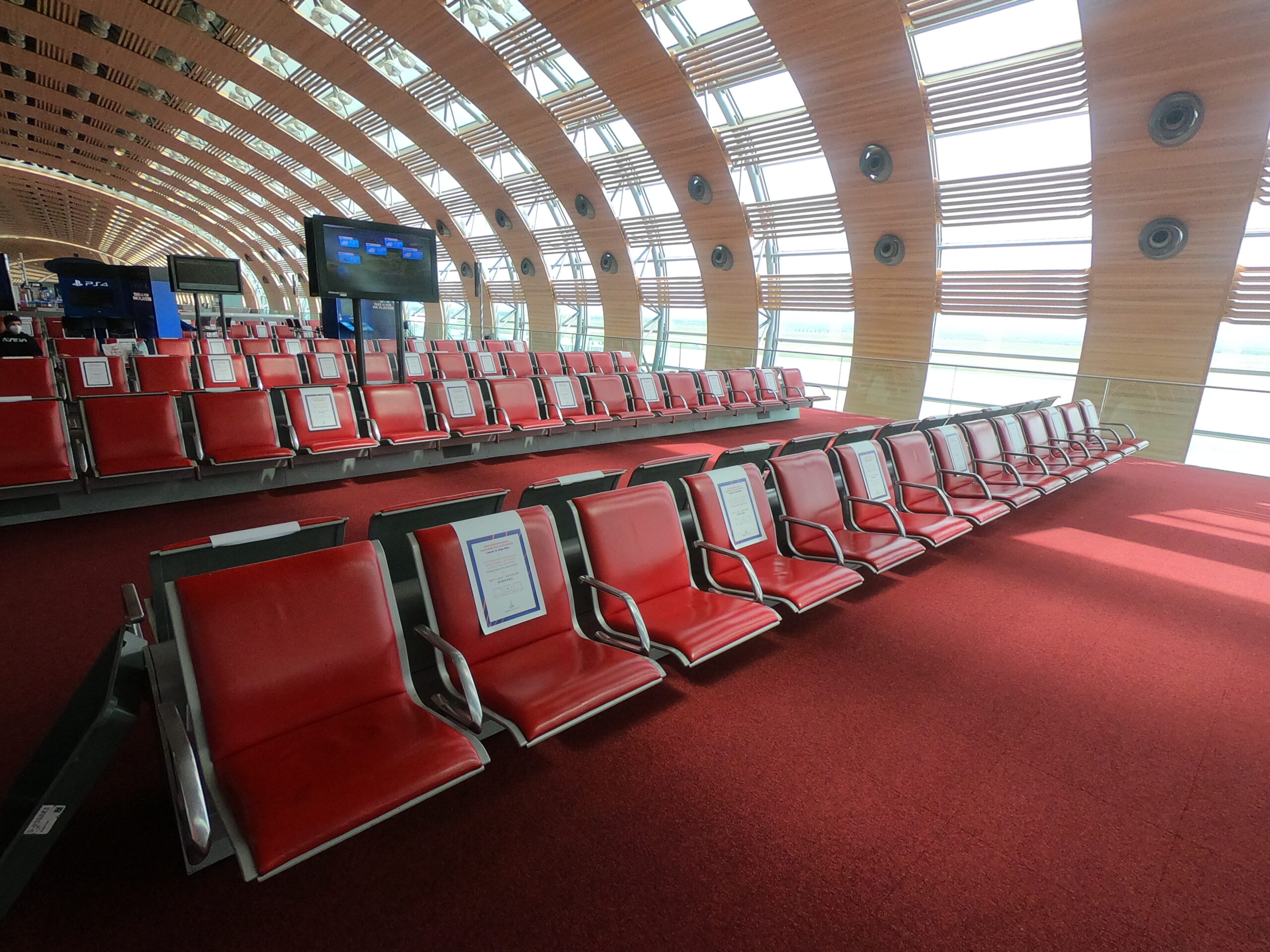
Groupe ADP Chairman & CEO Augustin de Romanet said: “Since the very beginning of this crisis, Groupe ADP was determined to be a pioneer of the implementation of new sanitary regulations, enabling us to restore the confidence of our travellers.
“Thanks to the collaboration with EASA, Groupe ADP and all its stakeholders involved in those test flights, can help government authorities in their decisions to restart aviation activities, which are driving forces for connectivity and tourism, and indirectly to the restart of the national economies.”
7 June
Turkey
India
Hong Kong, China
Cathay Pacific has introduced enhanced measures across every stage of the journey, from check-in to the cabin, to help passengers travel with confidence.
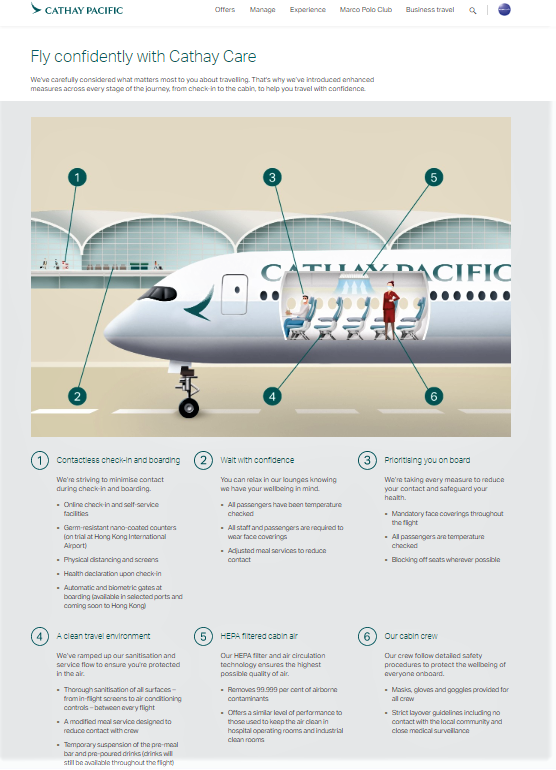
5 June
UK
The operator of Aberdeen, Glasgow and Southampton airports, AGS Airports, has announced a series of health measures, with services from the airports set to increase in the coming weeks.
All staff have been provided with personal protective equipment (PPE), protective screens have been installed and passenger touchpoints are being treated with an antimicrobial product that lasts for up to 30 days and is more than 99.99% effective against COVID-19.
AGS Airports Chief Executive Derek Provan said: “Our airports have remained open throughout this pandemic to provide crucial lifeline services. During this time, we’ve worked closely with both the UK and Scottish governments, and their officials, to ensure we follow all health guidance.
“As the lockdown begins to ease and airlines start to confirm plans to restart domestic connectivity, it’s important we do everything we possibly can to keep our airports clean and safe for our staff and for our passengers. These measures, which are in place at all three of our airports, will ensure we help each other to travel safely through our terminals at a time when we are working to get our country and the economy moving again.”
4 June
Indonesia
Garuda Indonesia has implemented a number of hygiene measures to make travellers feel more comfortable and safer when flying.
All staff are now wearing masks, every passenger is having their temperature measured, hand sanitisers are readily available and the inflight seating has been arranged to maintain social distancing.

2 June
UAE
Etihad Airways has introduced Wellness Ambassadors, who will provide customers with greater awareness of what the airline is doing to keep travellers safe.
Customers can email wellness@etihad.ae at any time of the day to be connected to a multi-lingual team providing advice on travel wellbeing and details of the sanitary measures undertaken by the airline.
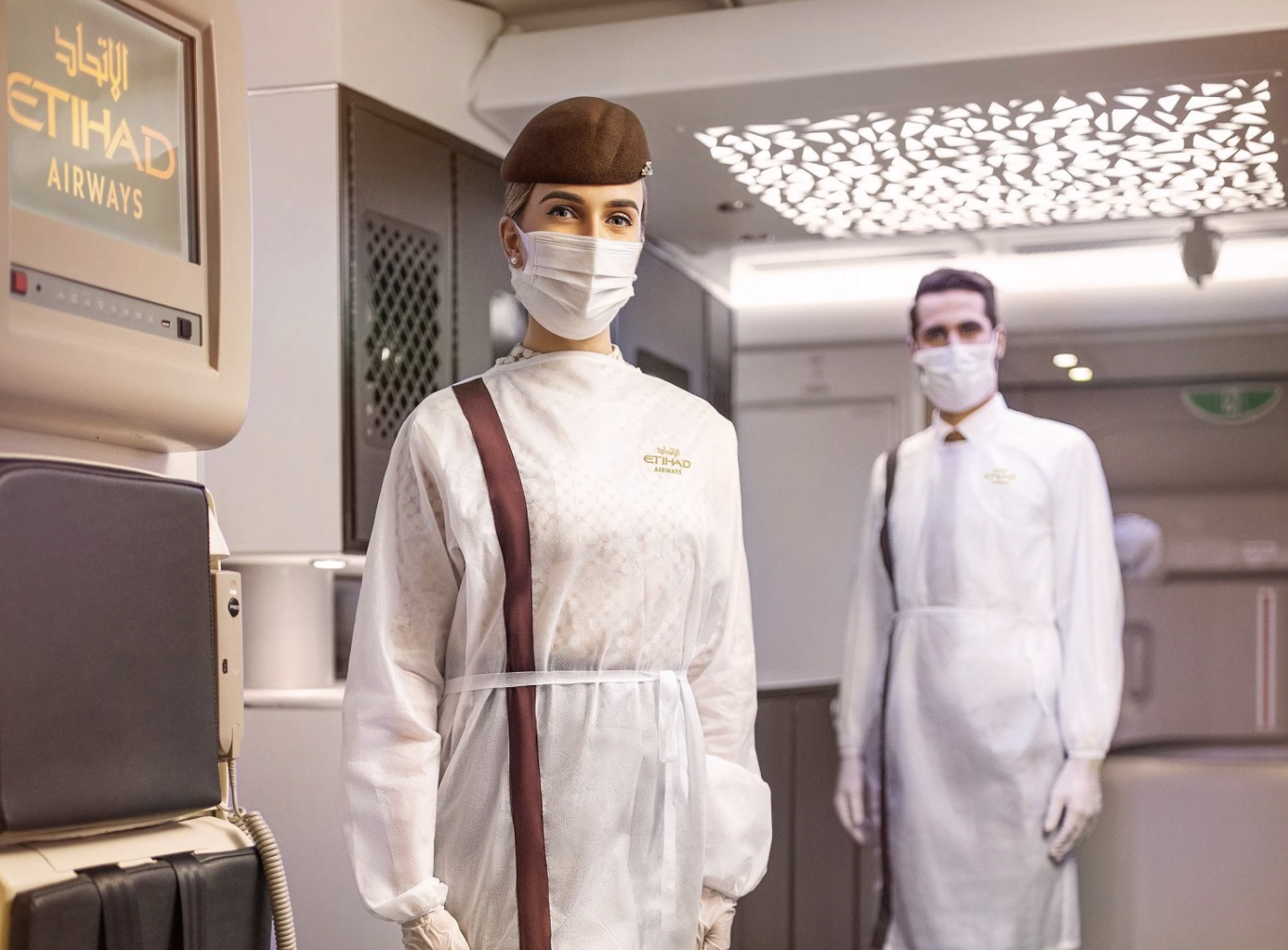
Etihad Aviation Group CEO Tony Douglas said: “Providing for our guests, and their wellbeing, is one of Etihad’s core values, and we have a responsibility to protect them, to keep them fully informed, and to provide even greater levels of genuine warmth and personal care.
“We must guarantee they can travel assured in the knowledge that we have every aspect of their journey with us covered, while still providing a top-quality travel experience. The Wellness Ambassadors will play an important role in delivering this.”
The service will soon be expanded to a live web chat facility. Etihad will also introduce ambassadors at Abu Dhabi International Airport.
1 June
UAE
Dubai Airports has introduced two vending machines selling personal protective equipment (PPE) at Dubai International Airport (DXB).
The machines, located in the departures area of Terminal 2 and Terminal 3, sell kits containing a mask and a pair of gloves, as well as two varieties of hand sanitiser. Dubai Airports said more items will be added in the coming days, including European-made reusable face masks.

29 May
North America
KPI North America has revealed the results of its survey into how willing people will be to travel after the COVID-19 pandemic and the steps they expect airports to introduce.
The survey of 509 respondents from the US and Canada found that 75% of passengers will return within six months of being told it is safe to fly and 84% of frequent travellers will travel within the first three months.
China (Hong Kong)
Airport Authority Hong Kong has implemented a number of hygiene measures ahead of transit traffic resuming at Hong Kong International Airport on 1 June.
As well as being required to wear a face mask, all transfer passengers will undergo body temperature screening on arrival and be given stickers for identification purposes.
The airport has also requested that all transit passengers go directly to their boarding gate and keep their distance from others while in queues.
International
Aviation consultancy SimpliFlying has unveiled a new programme to match start-ups which have developed solutions to air travel challenges in the coronavirus era with potential airport and airline clients.

Over the next two months, the SimpliFlying Launchpad – described by Simplifying as “the world’s first accelerator designed explicitly for post-COVID-19 travel” – is inviting applications from companies which have developed market-ready technologies in four key areas: sanitisation, touchless travel, contact tracing and ancillary revenues.
All companies applying are being invited to join the SimpliFlying Marketplace, which is a private platform for airlines and airports to find the best COVID-19 solutions, without having to conduct rigorous research of their own.
Participants will also be given access to aviation industry mentors, which include Eash Sandham (Chief Digital & Technology Officer, JetBlue), Joe Leader (CEO, Airline Passenger Experience Association), Jim Peters (former CTO, SITA), Dean Donovan (Founder and Director, Volaris), Maurice Jenkins (Director Information Systems and Telecommunications, Miami-Dade County Aviation Department) and Martin Moodie (Founder and Chairman, The Moodie Davitt Report).
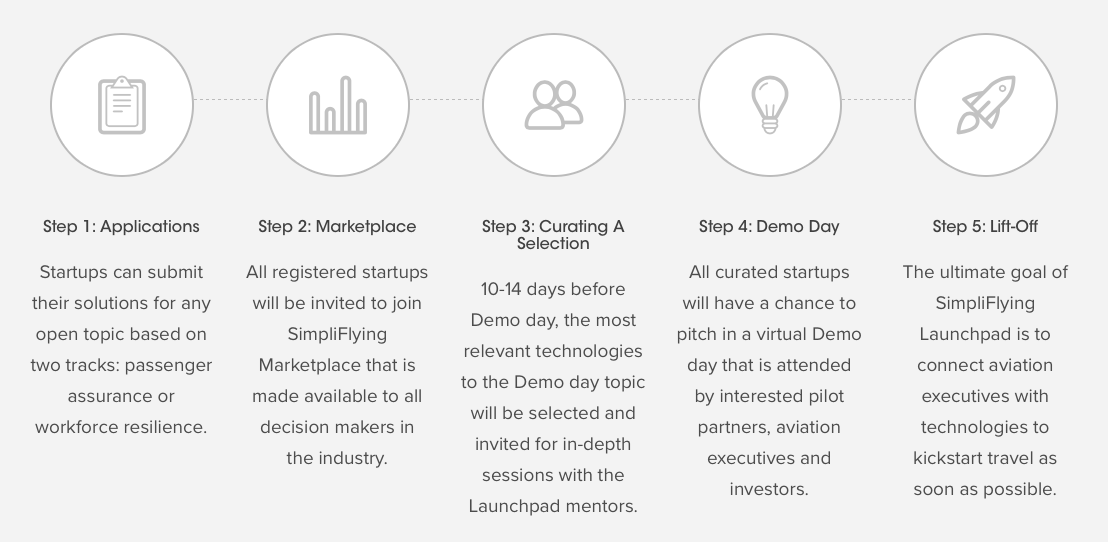
In the coming weeks, SimpliFlying said it will curate the most promising solutions and invite their creators to work with these industry mentors. Finally, a virtual demo day will showcase all finalists to pilot partners, aviation executives and potential investors.
Start-ups will exit the programme ready to go live, with the SimpliFlying team having developed “their launch trajectory in aviation”.
SimpliFlying CEO Shashank Nigam said: “To deal with the unprecedented challenges brought on by the pandemic, the aviation industry urgently needs transformative innovations to help rebuild passenger trust in travel. As a result of this, we will be helping a new class of start-ups and entrepreneurs succeed.”
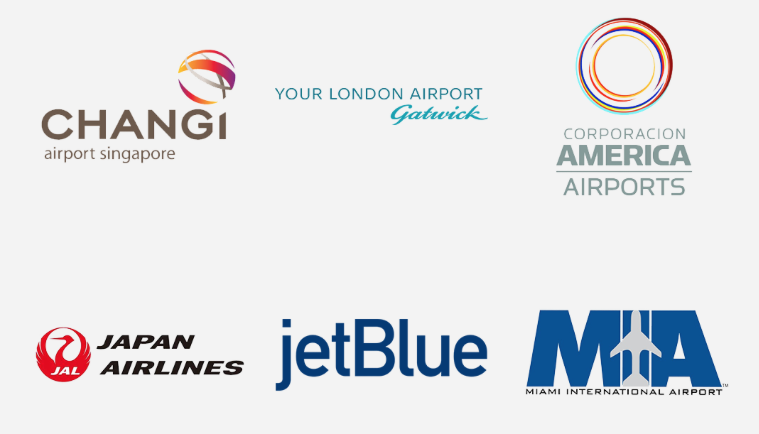
He added: “We aim to curate ready-to-deploy solutions for aviation partners who are willing to pilot them. We’ll also ensure that the aviation industry can successfully and quickly meet the challenges of the COVID-19 era of travel and beyond, with tried and tested and ready-to-go solutions.”
Meanwhile, SimpliFlying has also named the first corporate partners for the SimpliFlying Launchpad. They are JetBlue, Japan Airlines, London Gatwick Airport, Miami International Airport, Singapore Changi Airport and Corporacion America Airports, all of whom SimpliFlying said are “ready to pilot new technologies to kick-start travel”.
Japan Airlines VP Marketing Akira Mitsumasu said: “At such critical times, we must work collaboratively to find solutions both for the short-term and the longer term. SimpliFlying Launchpad will be a platform for concerted efforts.”
SimpliFlying hit the aviation media headlines recently with its The Rise of Sanitised Travel report, which identified over 70 different passenger touchpoints that will change as a result of the need to reassure passengers and industry regulators that air travel won’t be a spreader of the COVID-19 pandemic.
27 May
USA
Hartsfield-Jackson Atlanta International Airport is to become the first commercial user of a new app specifically designed to help facilities manage, monitor and measure heightened cleaning, sanitising and disinfecting practices.
From July the airport will be deploying the KOLO Hygiene app, created by Georgia-Pacific Professional (GP PRO), which uses a hygiene tracking technology that ensures custodians know which hygiene-specific tasks need to be completed. It also sends alerts to management confirming when tasks have been executed.
The technology will also provide a hygiene score to inform management if the airport has achieved its overall hygiene goals.
The airport also said it is in the process of installing approximately 250 additional ‘smart’ hand sanitisers throughout common areas, including gates, baggage claim areas, and the airport’s train tunnel. These sanitisers are wirelessly connected to an app that allows custodians to monitor usage levels and refill as necessary, so that a traveller is never met with an empty dispenser.
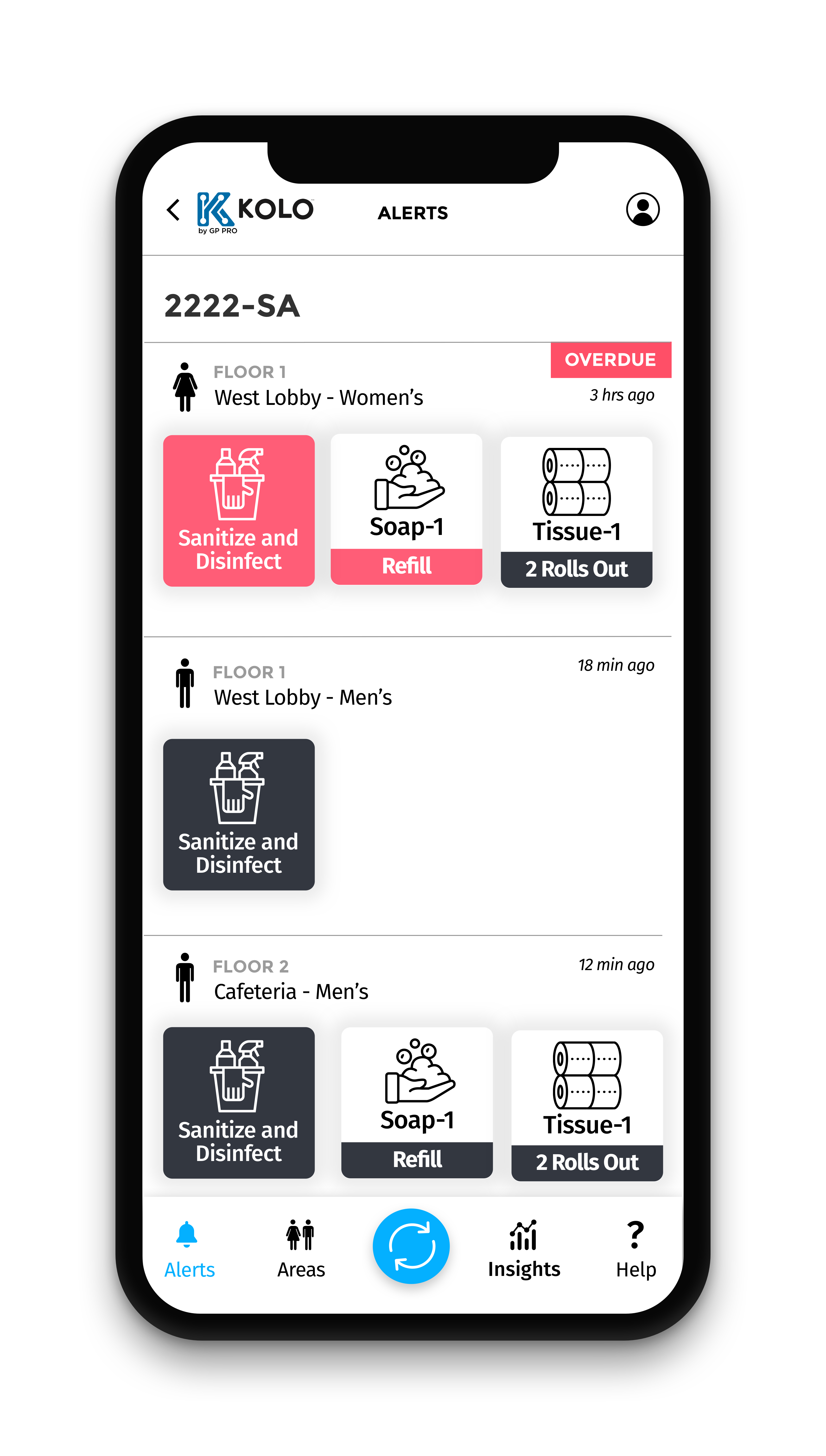
International

Airports Council International (ACI) World today published its comprehensive guidance plan for airports as they prepare to restart operations.
As reported, ACI World estimates that airports will suffer a COVID-19-inflicted year-on-year reduction of more than 4.6 billion passengers and a decline in revenue of more than US$97 billion in 2020.
The publication issued today, Aviation Operations during COVID-19 – Business Restart and Recovery, provides guidance for both the initial phases of the business restart, as well as the longer-term recovery process.
ACI World expects the return to business for the aviation industry to come in phases:
*initial restart with a limited number of passengers
*recovery with a slow increase in passenger volume
*gradual scale-up in capacity, and then
*return to more traditional passenger volumes.
Any new measures that are introduced at airports will need to evolve through these phases until, eventually, the industry will arrive at “the new normal” in terms of the end-to-end passenger journey, said ACI.
“COVID-19 has been an unprecedented global challenge, particularly to the aviation industry, with the quick spread of the virus resulting in governments rapidly restricting travel and closing borders to limit the spread,” said ACI World Director General Angela Gittens. “This has had a drastic and detrimental effect on airports worldwide and a variety of new measures could become a necessity at airports as the industry restarts.
“For airports, the focus is to protect the health and welfare of travellers, staff, and the public, to minimise the opportunities for dissemination of disease while maintaining efficient operations.”
ACI said it has identified “key principles to guide the implementation of practical, efficient, and workable health-related and operational measures”. It noted that measures should be “supported by medical evidence, should be risk-based and outcome-driven and that blanket on-airport health screening should be avoided”.
“Collaboration, cooperation and consistency are key, first for the industry to successfully restart, and then for sustaining a balanced recovery,” Gittens added. “ACI is a member of the ICAO Council Aviation Recovery Taskforce and we will continue to work with our global partners to advocate for the harmonisation of measures, processes and procedures that are introduced as a result of COVID-19.
“Governments and industry regulators will need to ensure that any new processes that they require airports to introduce are adapted to changing data and medical evidence and ensure that they remain aligned with those deployed through other modes of transport and the wider society.
“To help airports navigate this changing landscape, this publication is intended to be a living document with chapters added or amended as additional information becomes available and each chapter can be read as a standalone document.”
International
The Duty Free World Council (DFWC) will host a webinar titled ‘Planning to Restart’, in partnership with Airports Council International (ACI) and regional industry associations, on 3 June.
The aim of the event is to present updates on the current state of the duty free & travel retail industry, review the latest air traffic data courtesy of ACI World and highlight the measures taken by the Council and regional associations to help the business restart.
Full story here.
21 May
US
JetBlue announced that it will be blocking all middle seats as part of its new ‘Safety from the Ground Up’ programme. According to the airline, the seat-distancing measure will remain in place until at least 6 July.
JetBlue’s Safety from the Ground Up programme focuses on several key pillars: healthy crew members; clean air and surfaces; more space, fewer touchpoints; and travel flexibility. The airline is also rolling out temperature monitoring and electrostatic aircraft fogging from June.
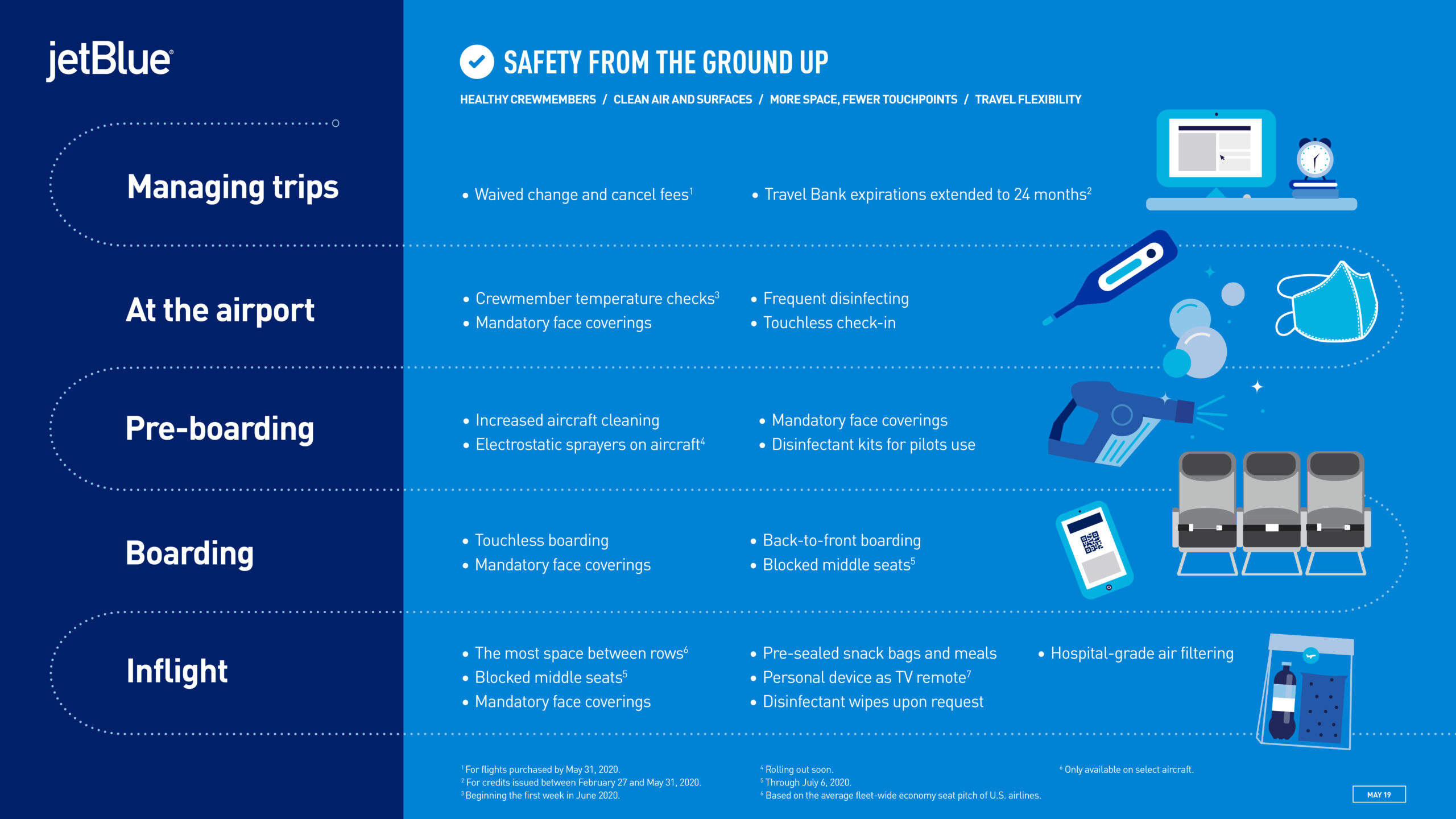
As part of the ‘more space, fewer touchpoints’ pillar, social distancing will be strictly implemented throughout JetBlue’s operations. All middle seats will be blocked on Airbus aircraft; while all aisle seats will be blocked on the airline’s smaller Embraer 190 aircraft. Customers travelling together will be allowed to sit with each other in middle and aisle seats.
JetBlue President and Chief Operating Officer Joanna Geraghty commented, “As communities start to reopen and with summer travel kicking off this weekend, more people are beginning to fly, and we want them to feel safe on JetBlue. Our program layers together a series of protections throughout the entire travel journey, which work together to help keep everyone safe and well.”
Geraghty added: “We’re known for generous legroom and space, and now more than ever, those choosing to travel want as much space as possible. We are pleased to extend our efforts to keep seats free and help everyone onboard spread out.”
Other safety measures include stringent temperature checks for all crew members, the use of face coverings for both passengers and crew, touchless check-in and boarding, and adjusted inflight services.
UK

London Heathrow Airport has started thermal screening trials in the immigration hall of Terminal 2.
The new measure was launched today and is part of the airport’s wider COVID-19 prevention programme.
The technology uses a camera detection system that can monitor the temperatures of multiple people moving across the airport. If successful, the thermal screening technology will be rolled out across all of the London airport’s terminals.
Heathrow said that observations from the trial will be shared with the UK government, as the company continues to urge global authorities to agree to a common international standard for airport health screenings.
Heathrow Chief Executive Officer John Holland-Kaye commented, “To unlock the full benefits of aviation for the economy, a common international standard for health screening must be agreed by the global authorities. The technology we are trialling now could be a part of this solution.”
20 May
Europe
A highly anticipated Aviation Health Safety Protocol proposed by two influential European agencies has been welcomed by airport and travel retail representatives, but looks set to curtail inflight retail sales as contact between crew and travellers is minimised on aircraft.
US
McCarran International Airport in Las Vegas has installed new vending machines selling personal protective equipment (PPE) for travellers.
There are three vending machines – two on either side of the Terminal 1 ticketing area and another near the Terminal 3 TSA checkpoint – all selling hand sanitiser, alcohol wipes, disposable gloves and a selection of masks.
A new option to help protect yourself and others while traveling. LAS was the first airport to install PPE vending machines from which travelers can purchase items like gloves and hand sanitizer. These machines can be found in T1 ticketing and near the T3 TSA checkpoint. pic.twitter.com/1suaVel412
— McCarran Airport (@LASairport) May 14, 2020
McCarran International Airport Spokesperson Christine Crews told CNN: “The whole world is going through behavioural modification and learning new habits, so it’s not unthinkable that someone could show up at the airport and not have the new necessities that are part of travel.”
California-based Prepango is the owner and operator of the machines.
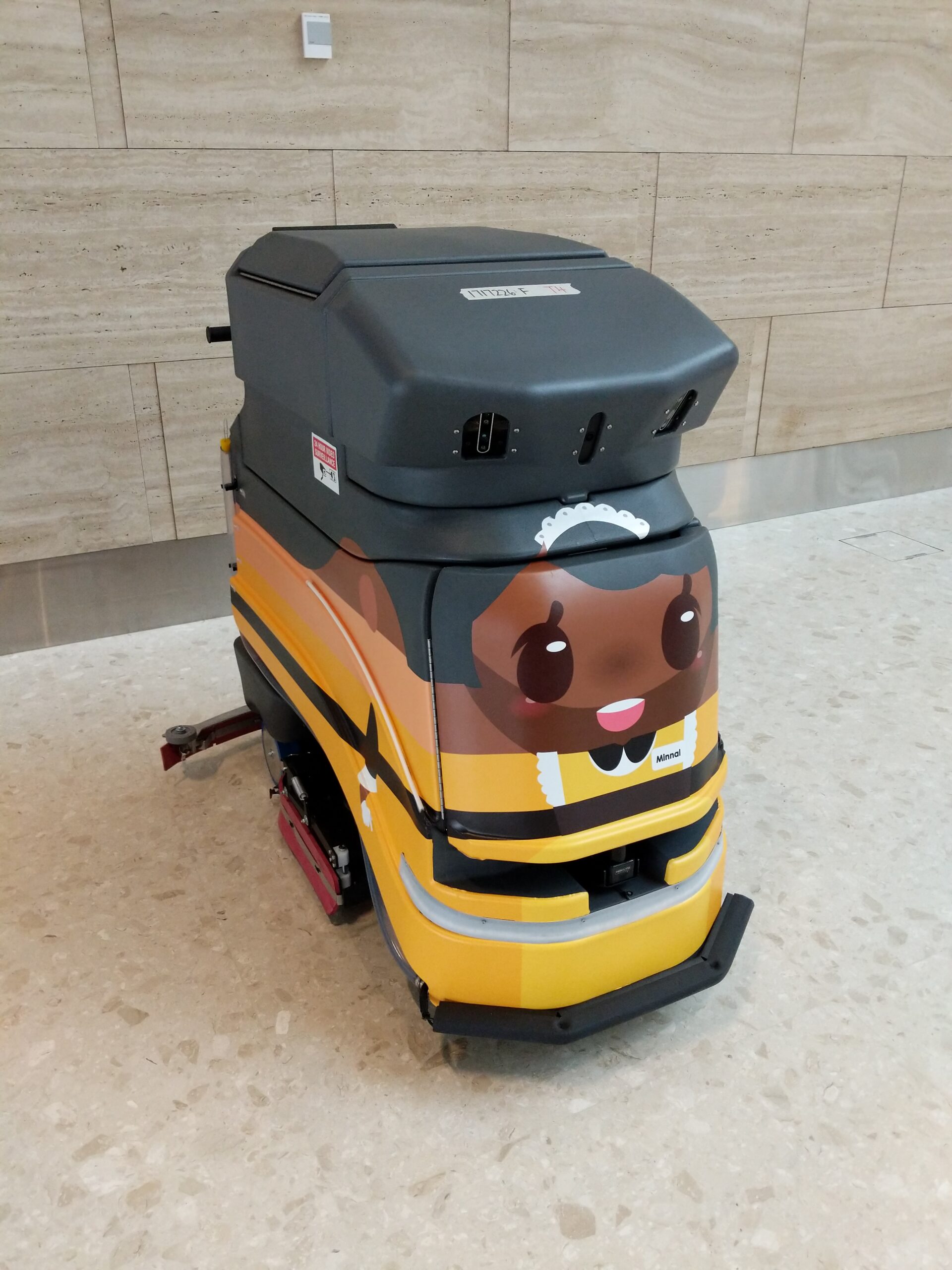
Singapore
Changi Airport Group has introduced new health and safety measures to prevent the spread of COVID-19.
The company has installed more than 1,200 motion-activated hand sanitiser dispensers across its terminals and in Jewel Changi.
It has also ramped up cleaning protocols — by using high-powered disinfectants over general cleaning products — and deployed 26 automatic sanitation robots.
Changi Airport Group is also spraying protective disinfectant coating on all touchscreen panels, immigration counters, bag-drop machines, lift buttons, handrails, and trolleys. The single application compound protects against viral substances for a period of up to six months. It has also been applied in all the main attractions in Jewel Changi including the Canopy Park and the Discovery Slide.
The company announced that all passengers on arrival will be subject to mandatory temperature screenings; while airport staff will undergo temperature checks twice a day.
International
Airports Council International (ACI) World and the International Air Transport Association (IATA) have called on governments to ensure new measures introduced for airports and airlines in the wake of COVID-19 are consistent across the world. Any restrictions put in place should be supported by scientific evidence, they added.
ACI and IATA have jointly issued a paper laying out a pathway for restarting the aviation industry – Safely Restarting Aviation – ACI and IATA Joint Approach. They said that airlines and airports have cooperated to build a roadmap for resuming operations “which reassures the travelling public that health and safety remain the priorities”. The roadmap mirrors proposals put forward in a statement by IATA last night (see below).
The joint approach proposes a layered approach of measures across the entire passenger journey to minimise the risk of transmission of COVID-19 at airports and onboard aircraft, and to prevent aviation becoming a meaningful source of international re-infection. Such measures should be globally consistent and subject to continued review, improvement, and removal when no longer required, to ensure an even recovery.
ACI and IATA are both central members the COVID-19 Aviation Recovery Task Force (CART) being led by the Council of the International Civil Aviation Organization (ICAO).
“Airports and airlines have come together with ICAO and the wider aviation industry to address the biggest challenge ever faced by commercial aviation in restarting a global industry while continuing to halt the spread of COVID-19,” ACI World Director General Angela Gittens said. “There is currently no single measure that could mitigate all the risks of restarting air travel but we believe a globally-consistent, outcome-based approach represents the most effective way of balancing risk mitigation with the need to unlock economies and to enable travel.”
19 May
Australia
Qantas and Jetstar will roll out a series of measures aimed at offering travellers peace of mind pre-flight and onboard with domestic travel restrictions expected to ease. The ‘Fly Well’ programme will be launched from 12 June.
Pre-flight
- Information will be sent to all customers before they fly.
- Contactless check-in (via online/app) and self-serve bag drop is encouraged, including use of Q Bag Tags.
- Hand sanitising stations at departure gates.
- Temporary changes to Qantas Lounges, including increased physical distancing, hand sanitising stations, enhanced disinfection of surfaces and adjustments to the food and drink service.
- Working with airports on other safeguards in the terminal, including regular disinfection of security screening points and installing hygiene screens at airline customer service desks, wherever practical.
Onboard
- Masks provided to all passengers on each flight – while not mandatory, they are recommended.
- Enhanced cleaning of aircraft with a disinfectant effective against coronaviruses, with a focus on high contact areas – seats, seatbelts, overhead lockers, air vents and toilets.
- Sanitising wipes given to all passengers to wipe down seat belts, trays and armrests themselves, if preferred.
- Simplified service and catering to minimise touchpoints for crew and passengers.
- Passengers asked to limit movement around cabin, once seated.
- Sequenced boarding and disembarkation to minimise crowding.

Qantas Group CEO Alan Joyce said: “We’re relying on the cooperation of passengers to help make these changes work for everyone’s benefit, and we thank them in advance for that. Given the great job Australians have done at flattening the curve, we’re confident they’ll respond positively to these temporary changes to how we fly.
“We’ll continue to work with government and monitor the rollout of these measures closely, which are designed with safety in mind and help people feel comfortable given the new norms that have emerged in response to the coronavirus crisis.”
Qantas Group Medical Director Dr Ian Hosegood said: “The data shows that actual risk of catching coronavirus on an aircraft is already extremely low. That’s due to a combination of factors, including the cabin air filtration system, the fact people don’t sit face-to-face and the high backs of aircraft seats acting as a physical barrier. As far as the virus goes, an aircraft cabin is a very different environment to other forms of public transport.
“Social distancing on an aircraft isn’t practical the way it is on the ground, and given the low transmission risk on board, we don’t believe it’s necessary in order to be safe. The extra measures we’re putting place will reduce the risk even further.”
The Fly Well programme will be reviewed after its first month of operation and shaped by customer feedback and medical advice.
18 May
Qatar
Qatar Airways has introduced several additional safety measures for both passengers and cabin crew as it begins to expand flight operations.
Cabin crew are now required to wear personal protective equipment (PPE) onboard. This includes safety goggles, gloves, masks, and the wearing of PPEs over their uniforms.
The airline is also implementing social distancing in-flight and during boarding. On flights with lighter passenger loads, it will allocate seats to minimise the occurrence of passengers sitting next to each other. It has also significantly reduced passenger and crew interactions and closed all social areas inflight. Large bottles of hand sanitiser will also be placed in the galleys.
Beginning 25 May, Qatar Airways will require passengers to wear face coverings and recommends that passengers provide their own face masks.
To reduce passenger and cabin crew contact during meal services, business class meals will be served on trays instead of in courses, with cutlery wraps used as an alternative to individual cutlery.
Business class passengers can enjoy enhanced privacy in the Qsuite, which offers sliding privacy partitions and fully closing doors. They can also opt to use the ‘Do Not Disturb’ indicator to further limit interaction with cabin crew.

As reported, the airline has implemented enhanced cleaning protocols, recommended by the International Air Transport Association (IATA) and the World Health Organisation (WHO), across its entire fleet.
This includes the stringent washing of all onboard linens, sanitising all meal service utensils at bacteria-killing temperatures and using HEPA filters that remove 99.97% of viral contaminants from re-circulated air.
The airline has also invested in disinfectant robots — which are fully autonomous and emit concentrated UV-C lights — to eliminate infectious microorganisms in Hamad International Airport.
In addition, Qatar Airways has required staff to take additional health and safety training to help them adopt the new safety measures.
The airline has revised cabin crew distribution by sending two groups — the first to work on the outbound trip and the second to on the inbound trip — on short-haul and medium-haul flights. Long-haul flight crew members, who must stay overnight in a foreign city, can only travel via Qatar Airways-approved transport and must self-isolate in their rooms.

Cabin crew are also thermally screened before any flight departure and after their arrival. If a colleague or passenger show any symptoms of infection, relevant cabin crew members will be quarantined and tested.
His Excellency Qatar Airways Group Chief Executive Mr. Akbar Al Baker commented, “At Qatar Airways, we have introduced these additional safety measures onboard our flights to ensure the continued health and wellbeing of our passengers and cabin crew, and to limit the spread of coronavirus. As an airline, we maintain the highest possible hygiene standards to ensure that we can fly people home safely during this time and provide even greater reassurance that safety is our number one priority.
“Seeing as we are still flying the world’s largest international network by operating flights to more than 30 destinations around the world and aiming to grow our network again in the coming months, these onboard safety measures will assist us in achieving our goals.”
NOTE: For earlier updates, click here










